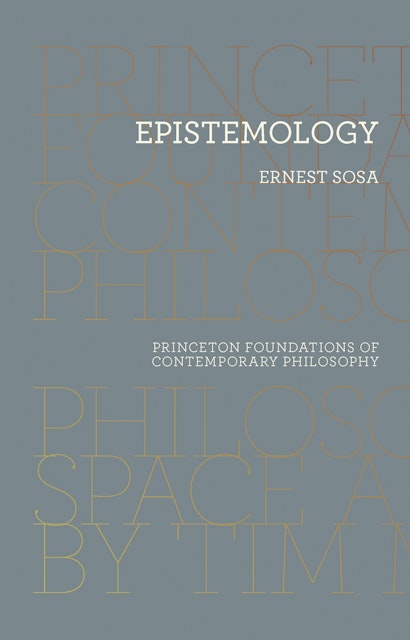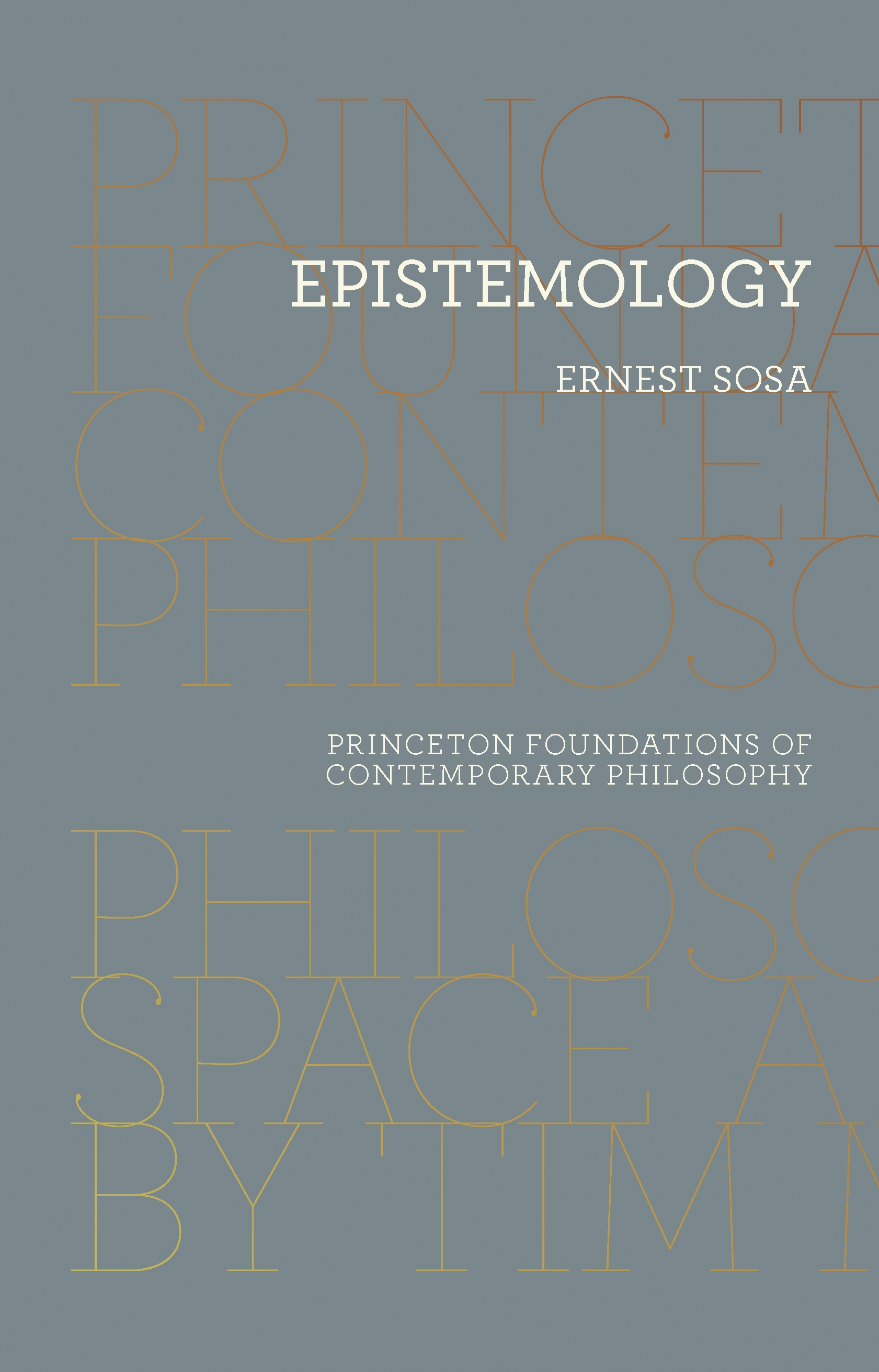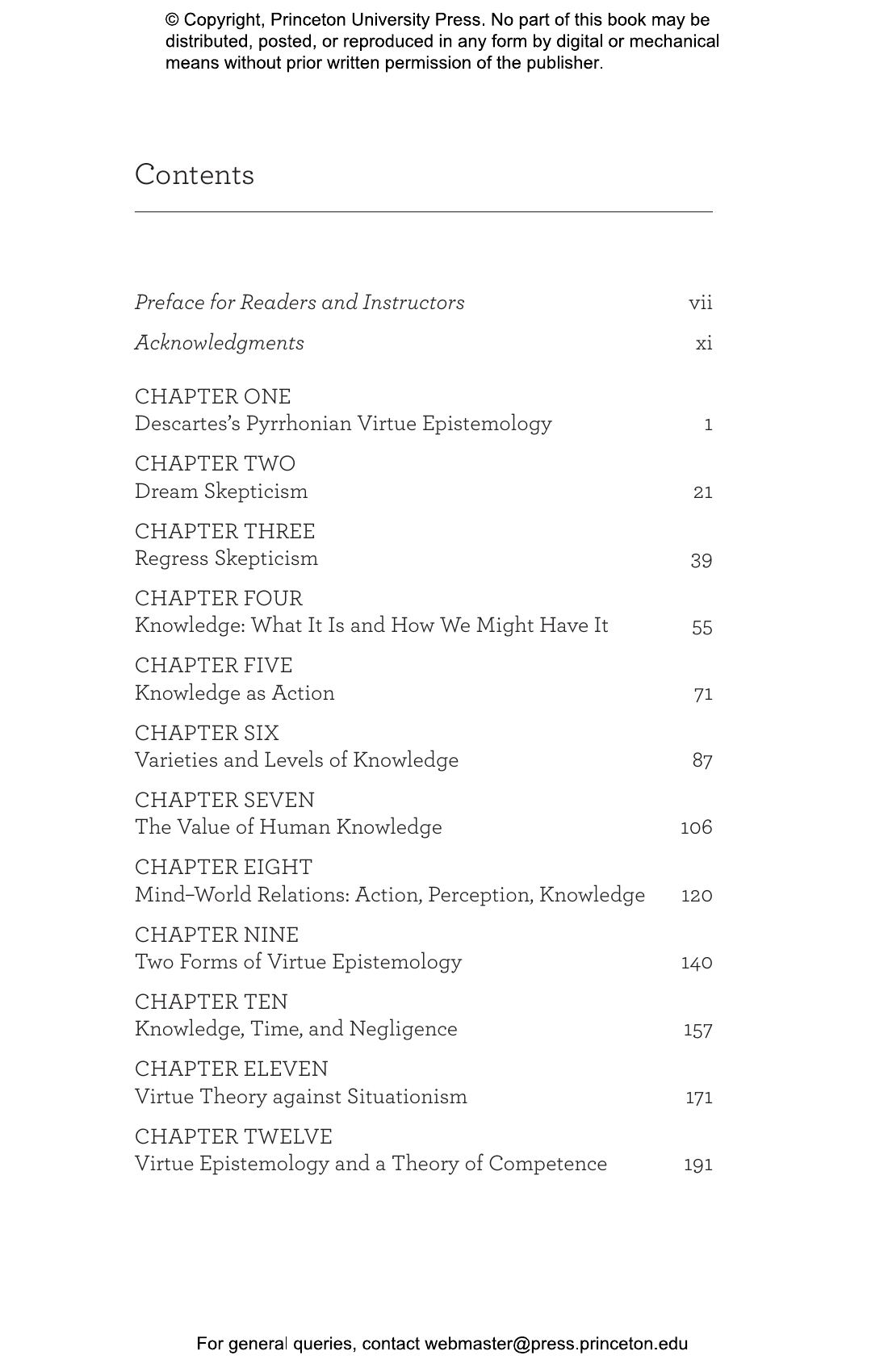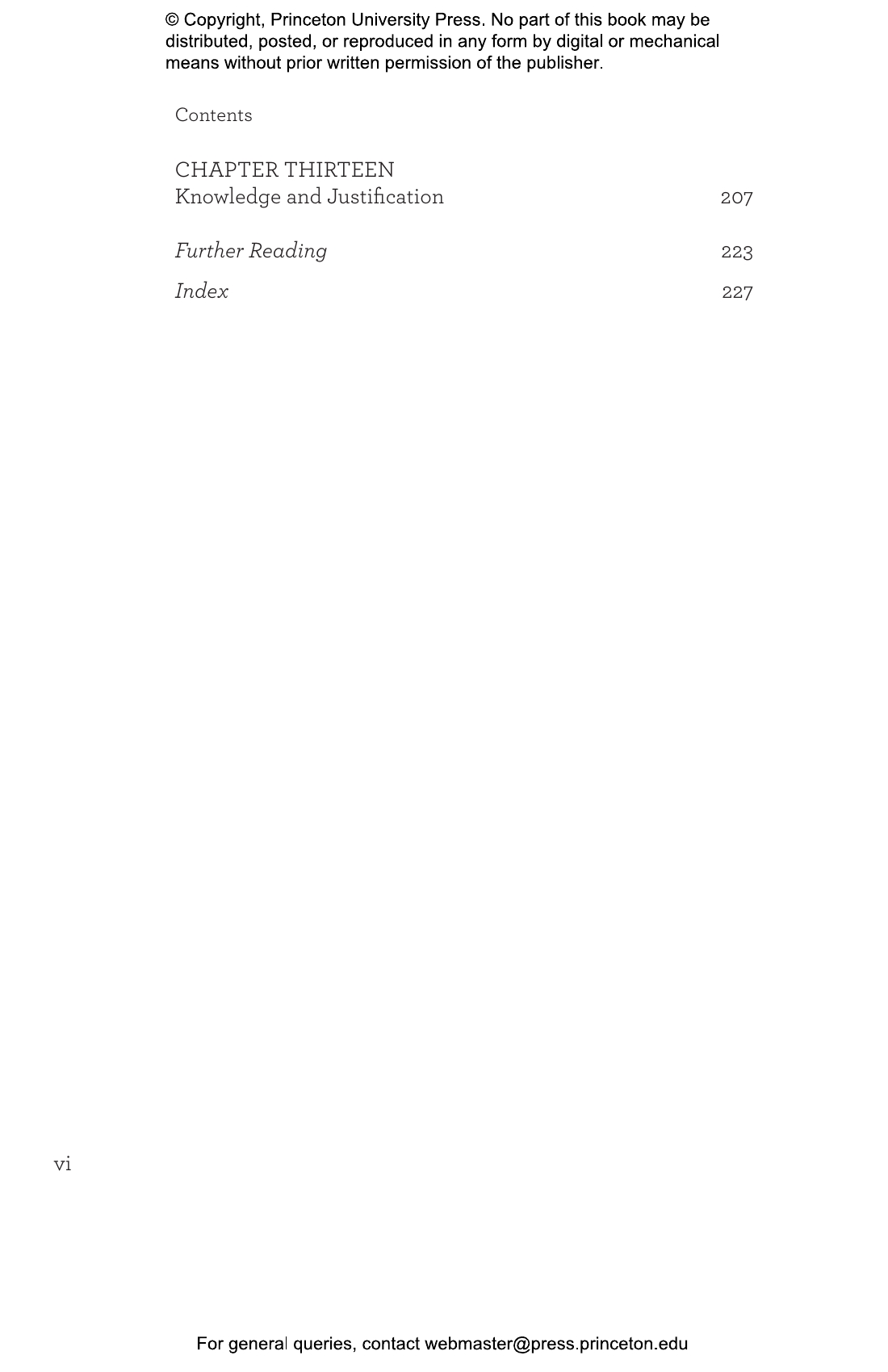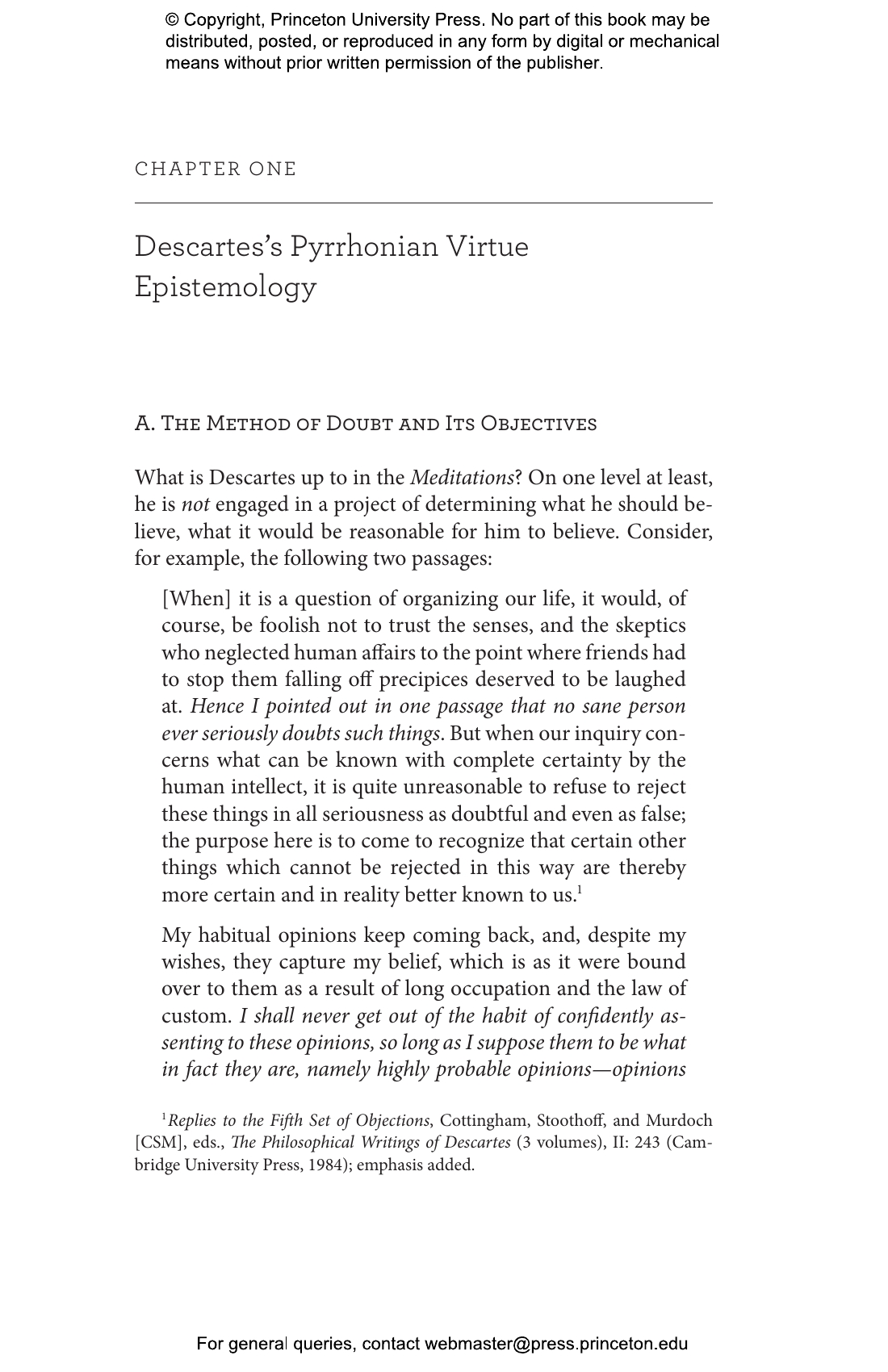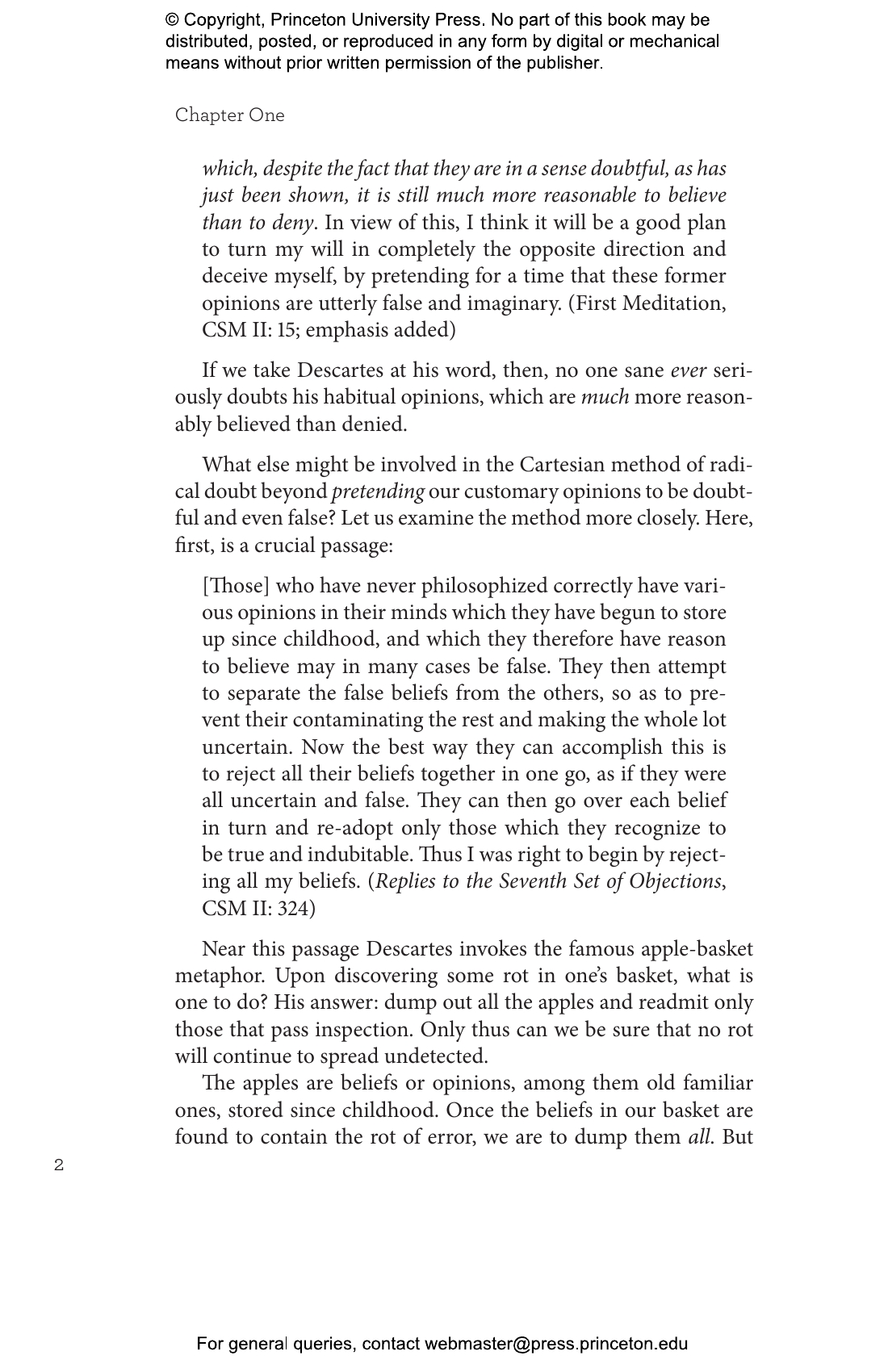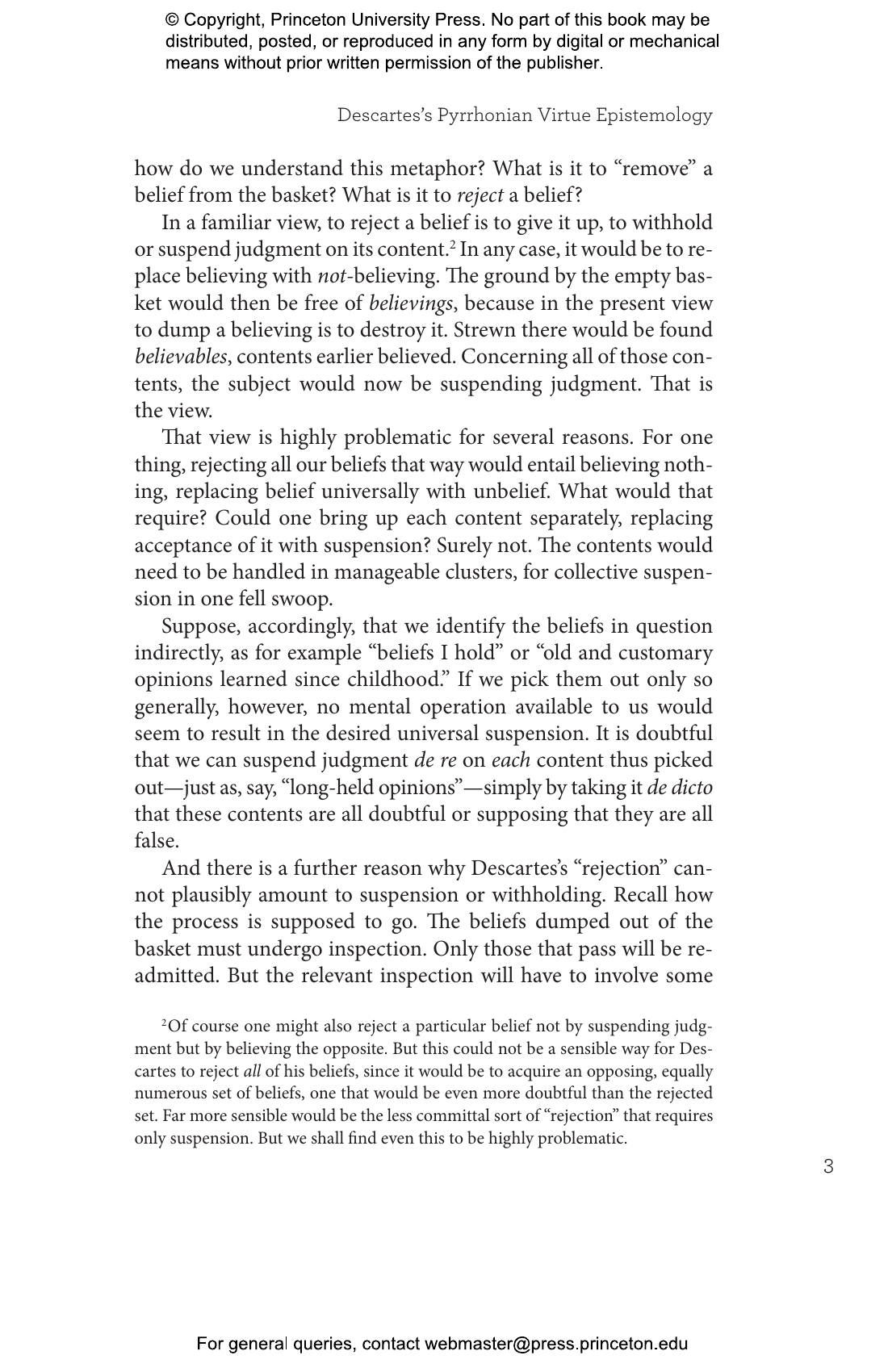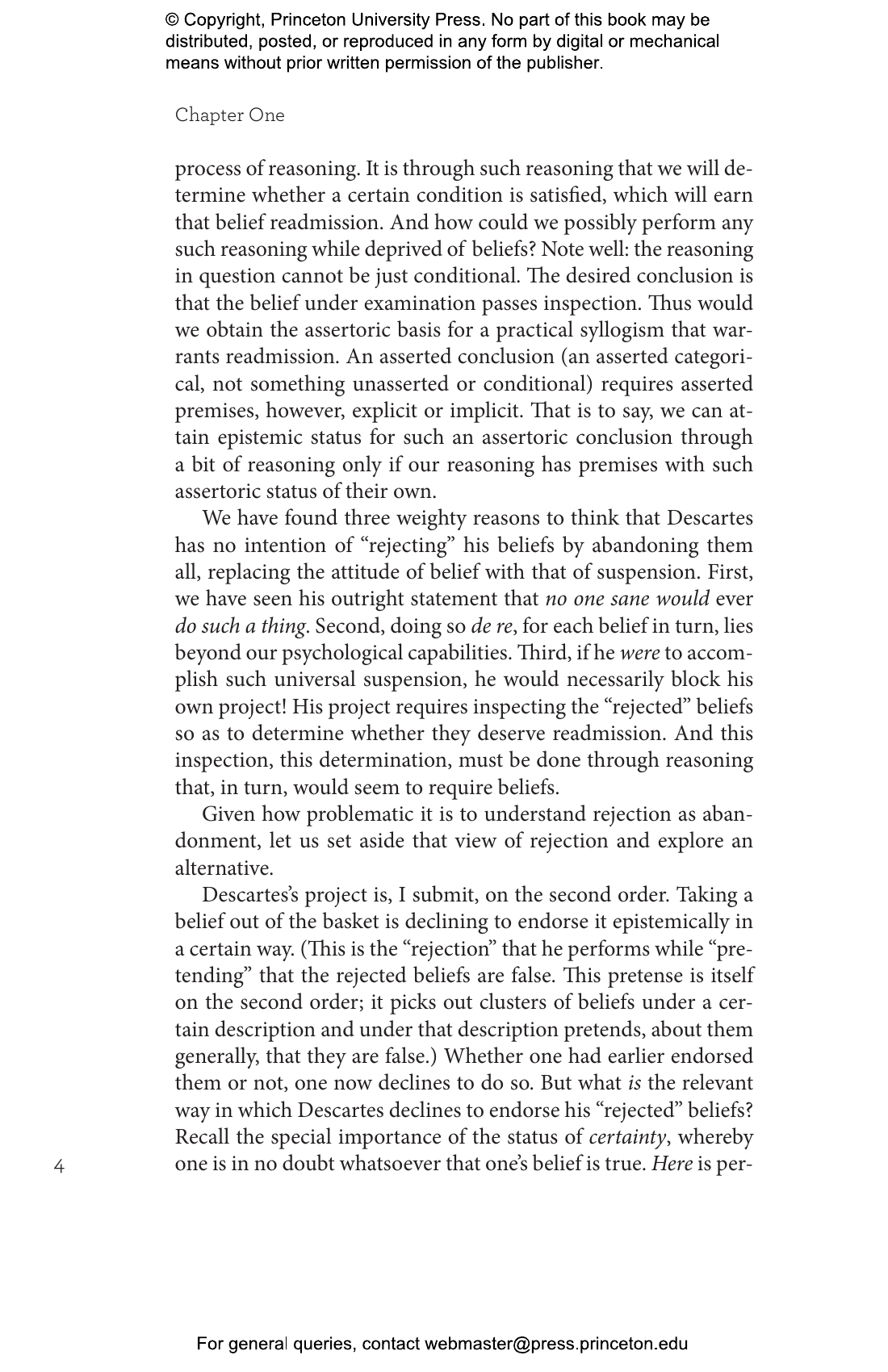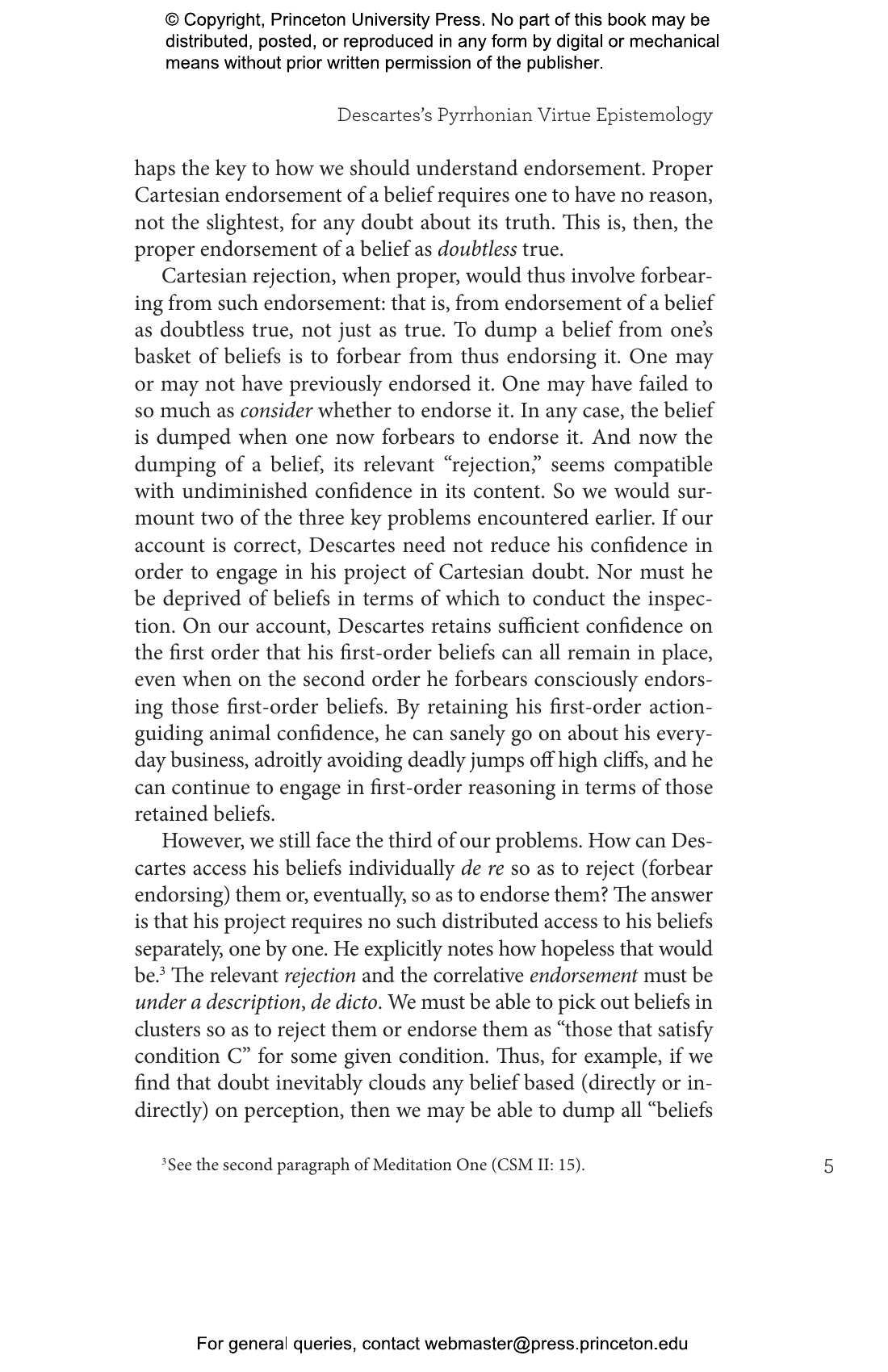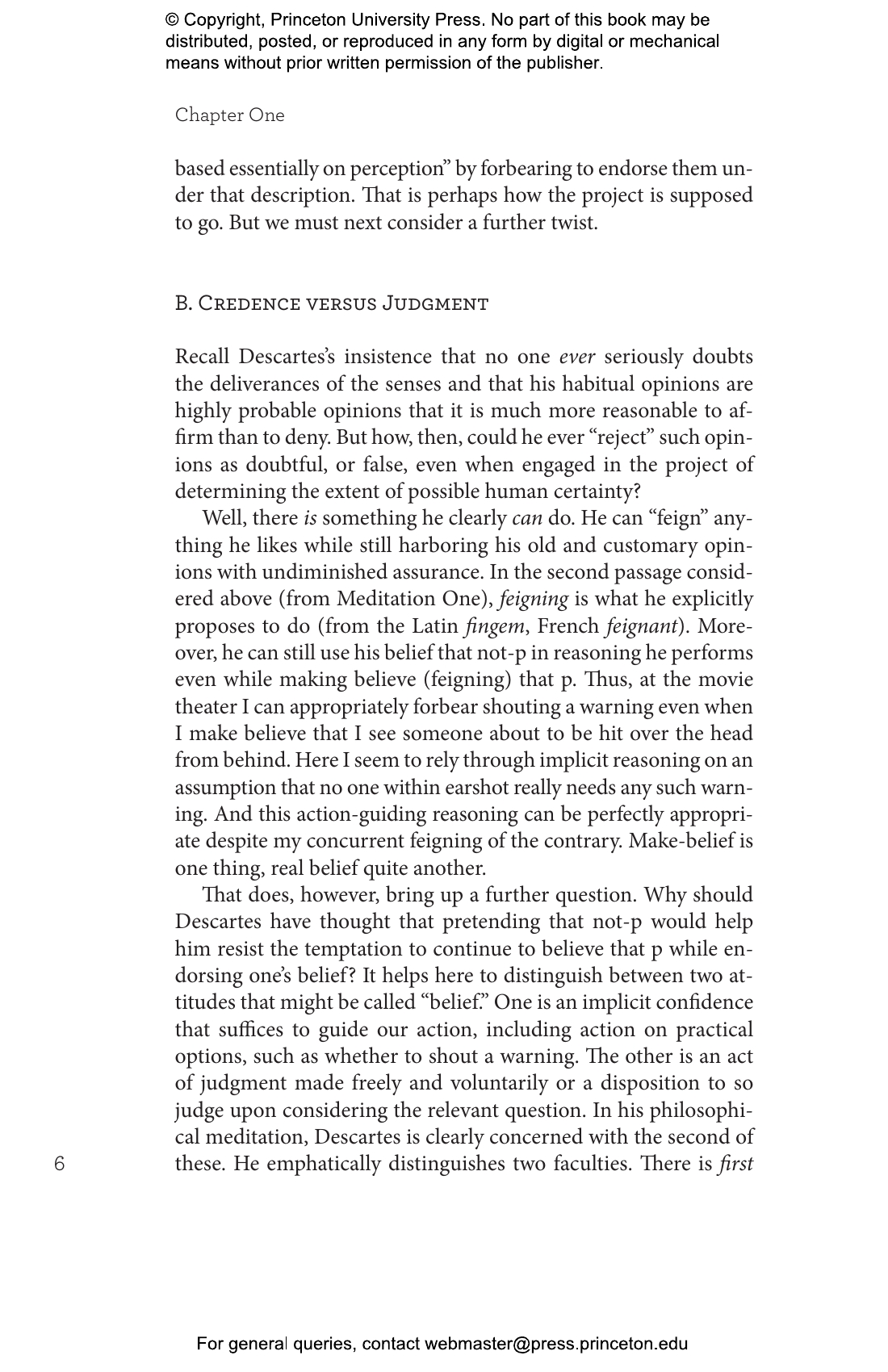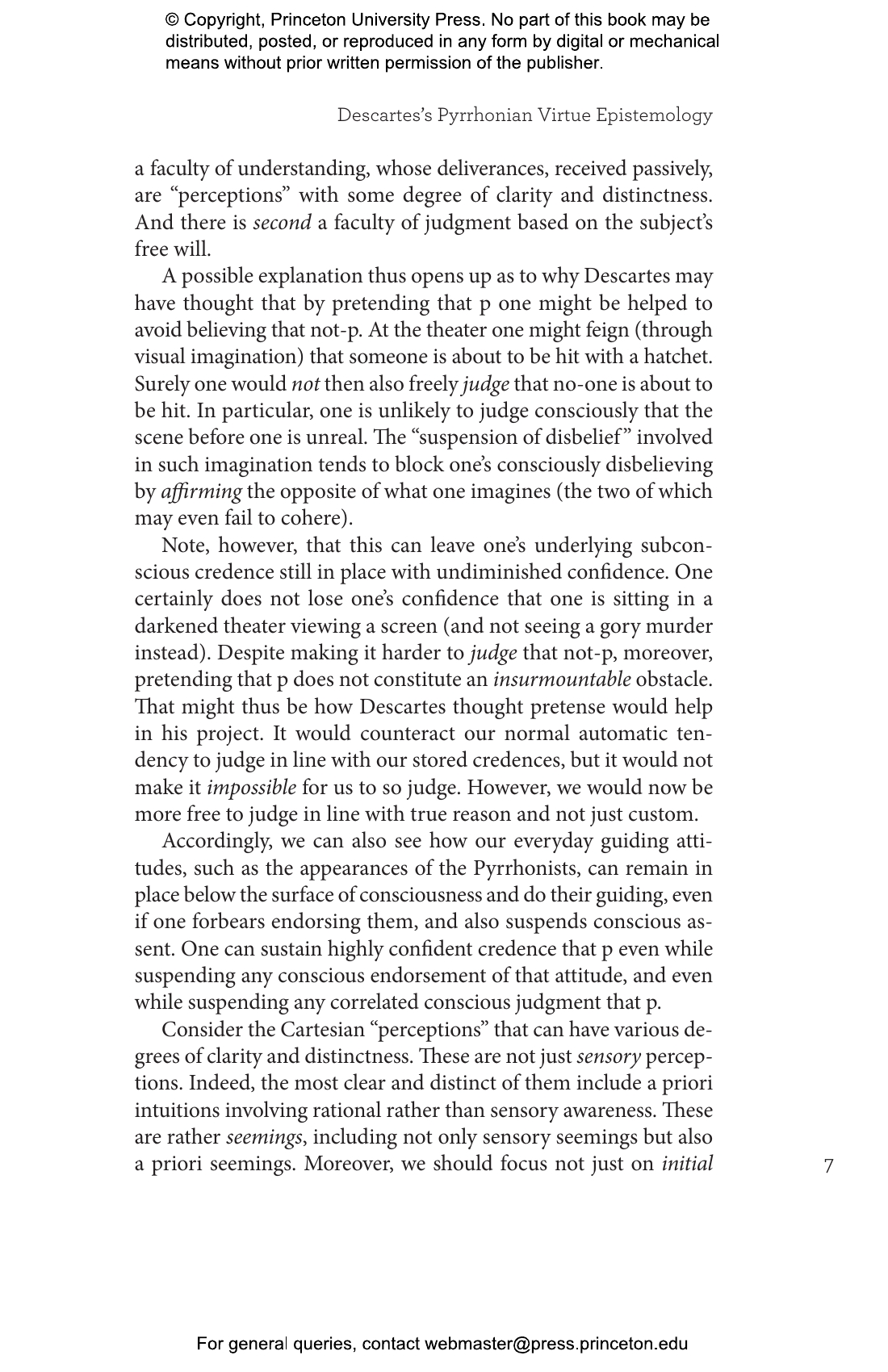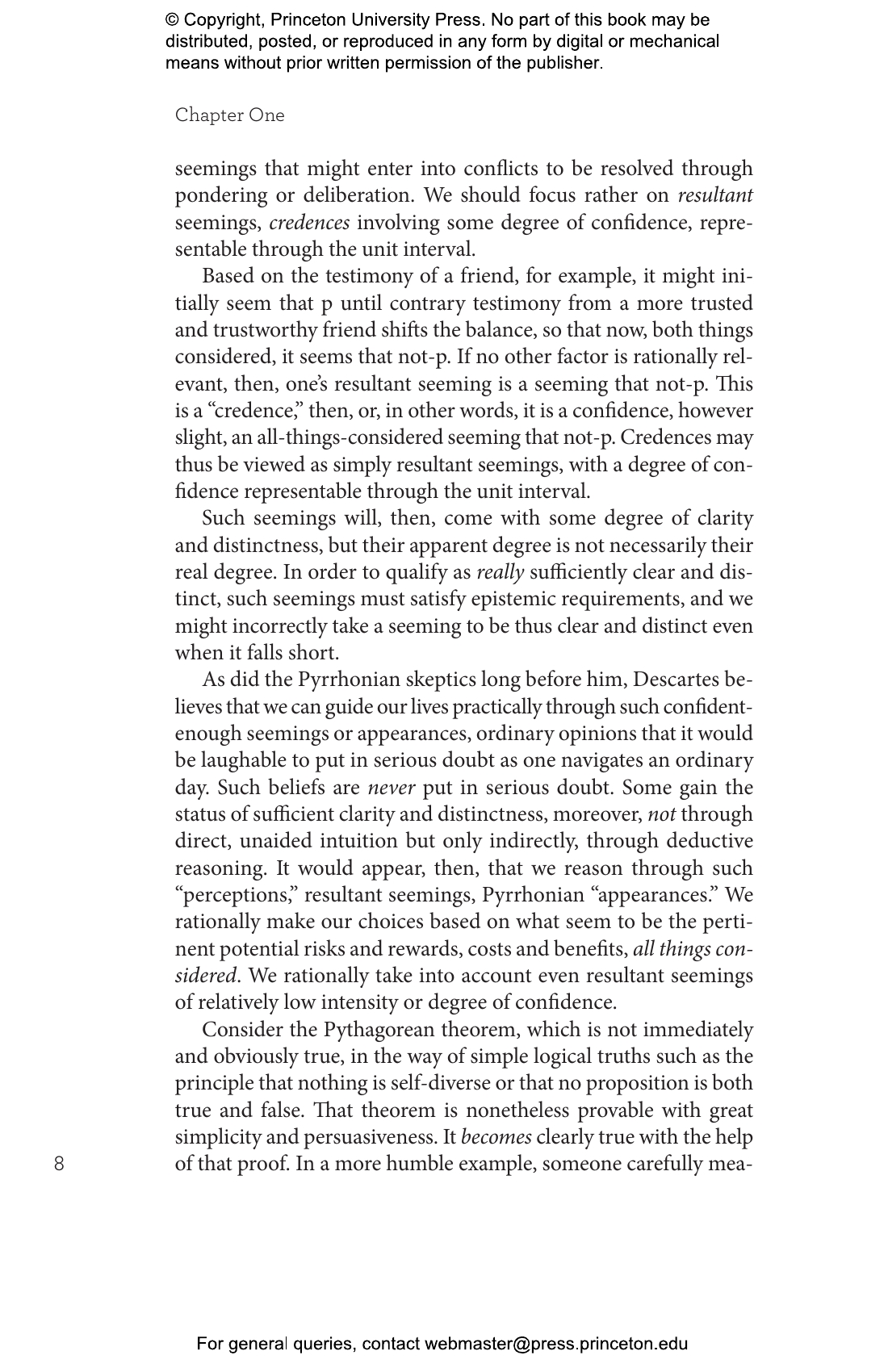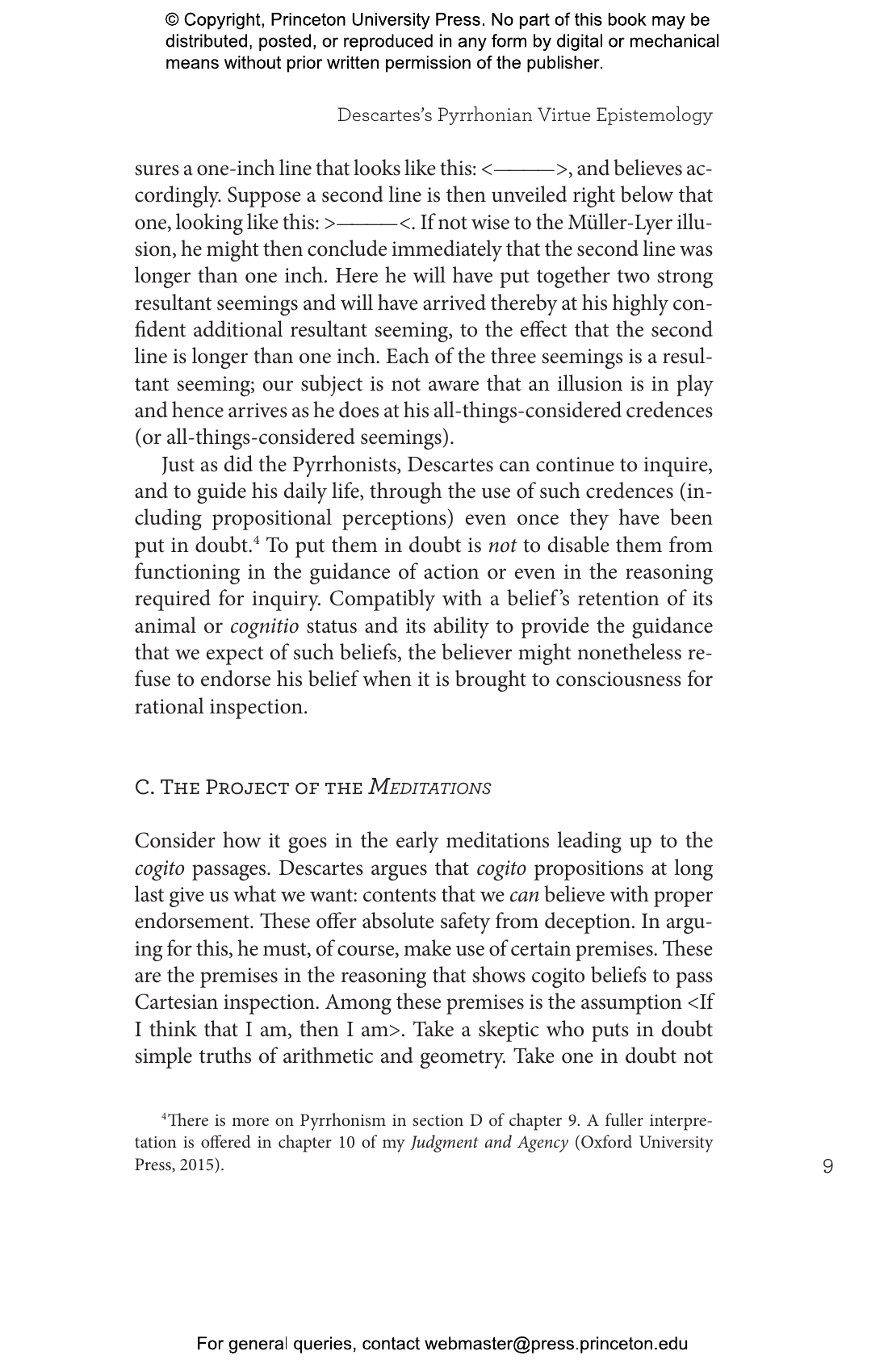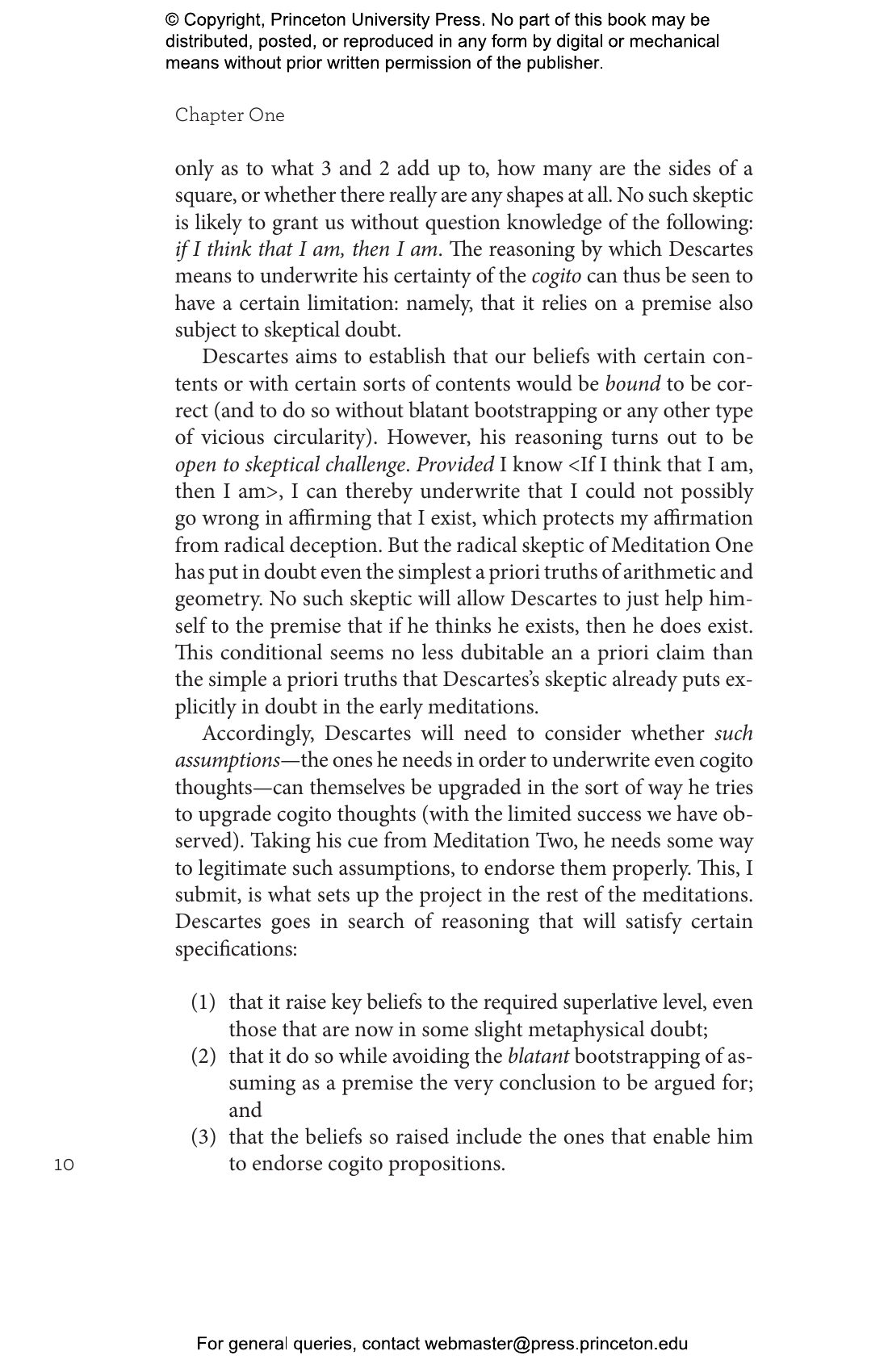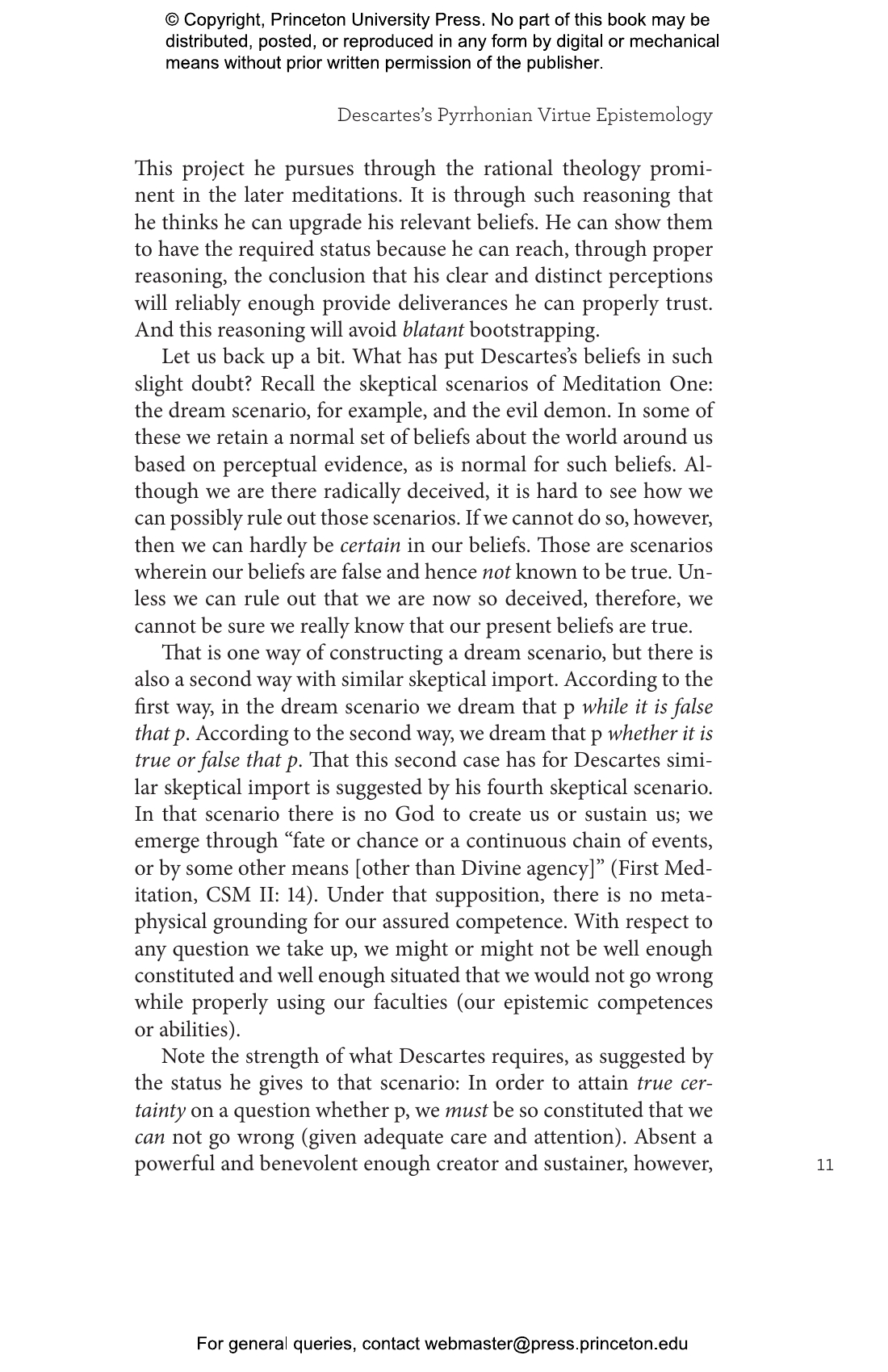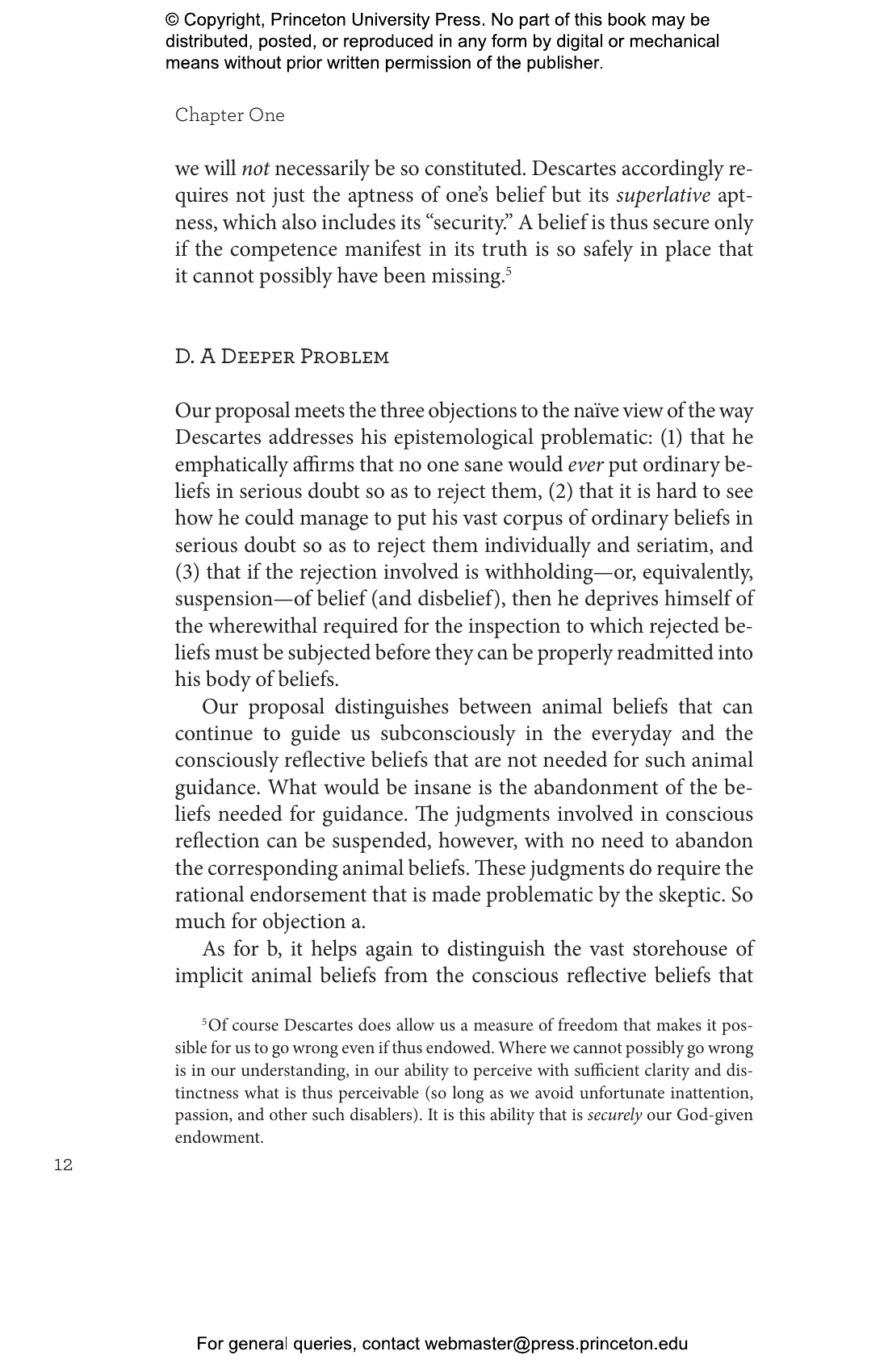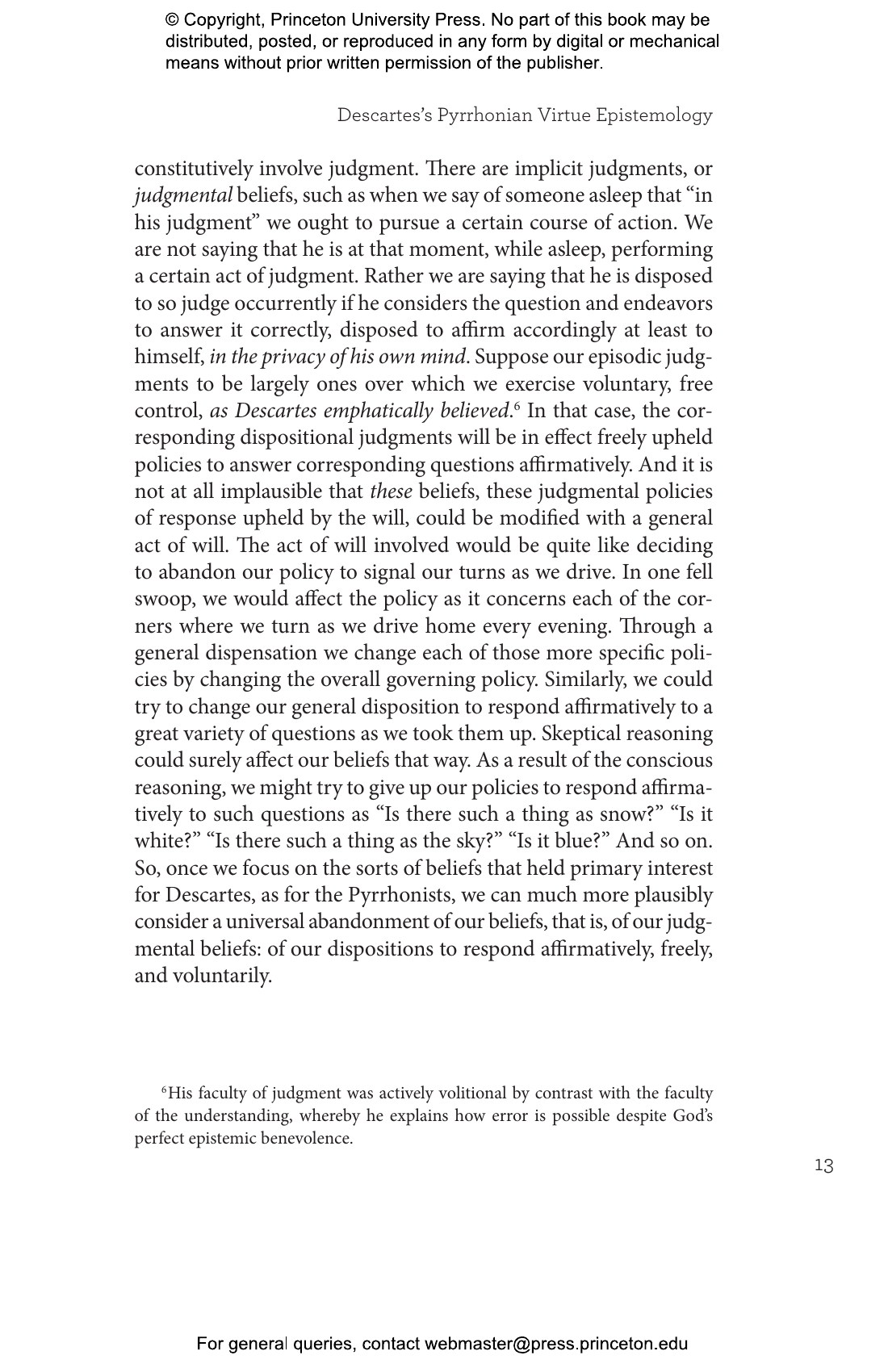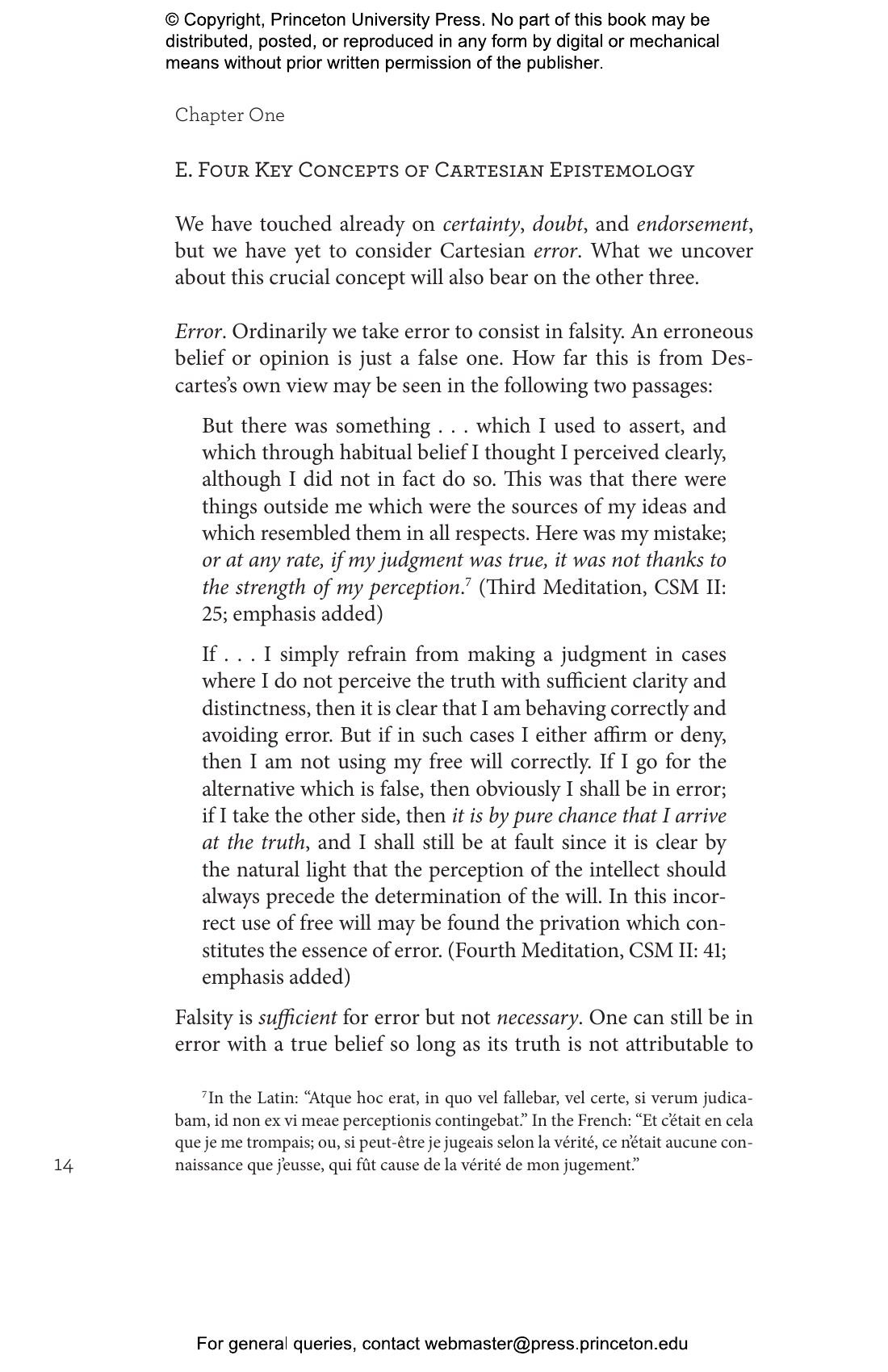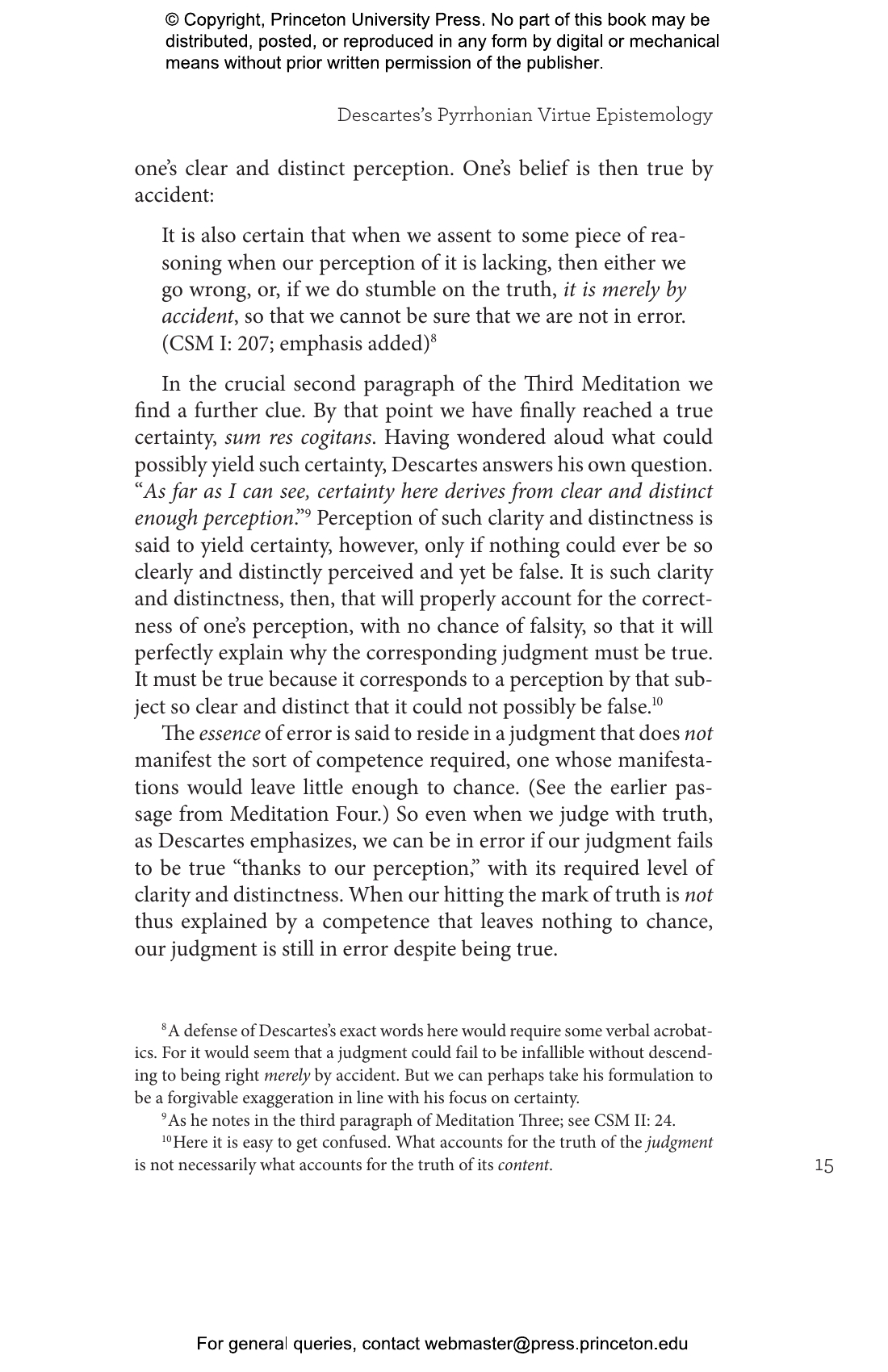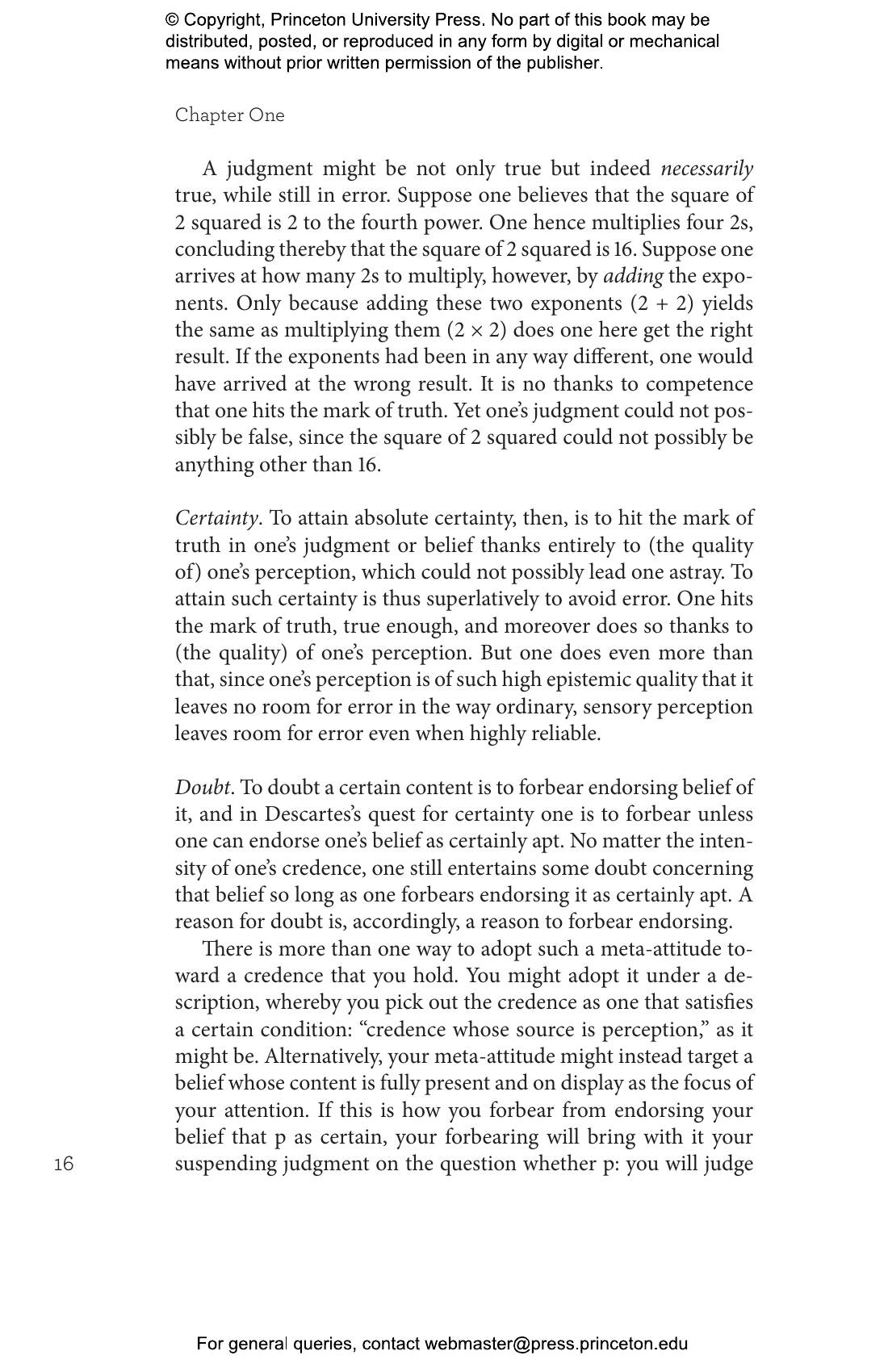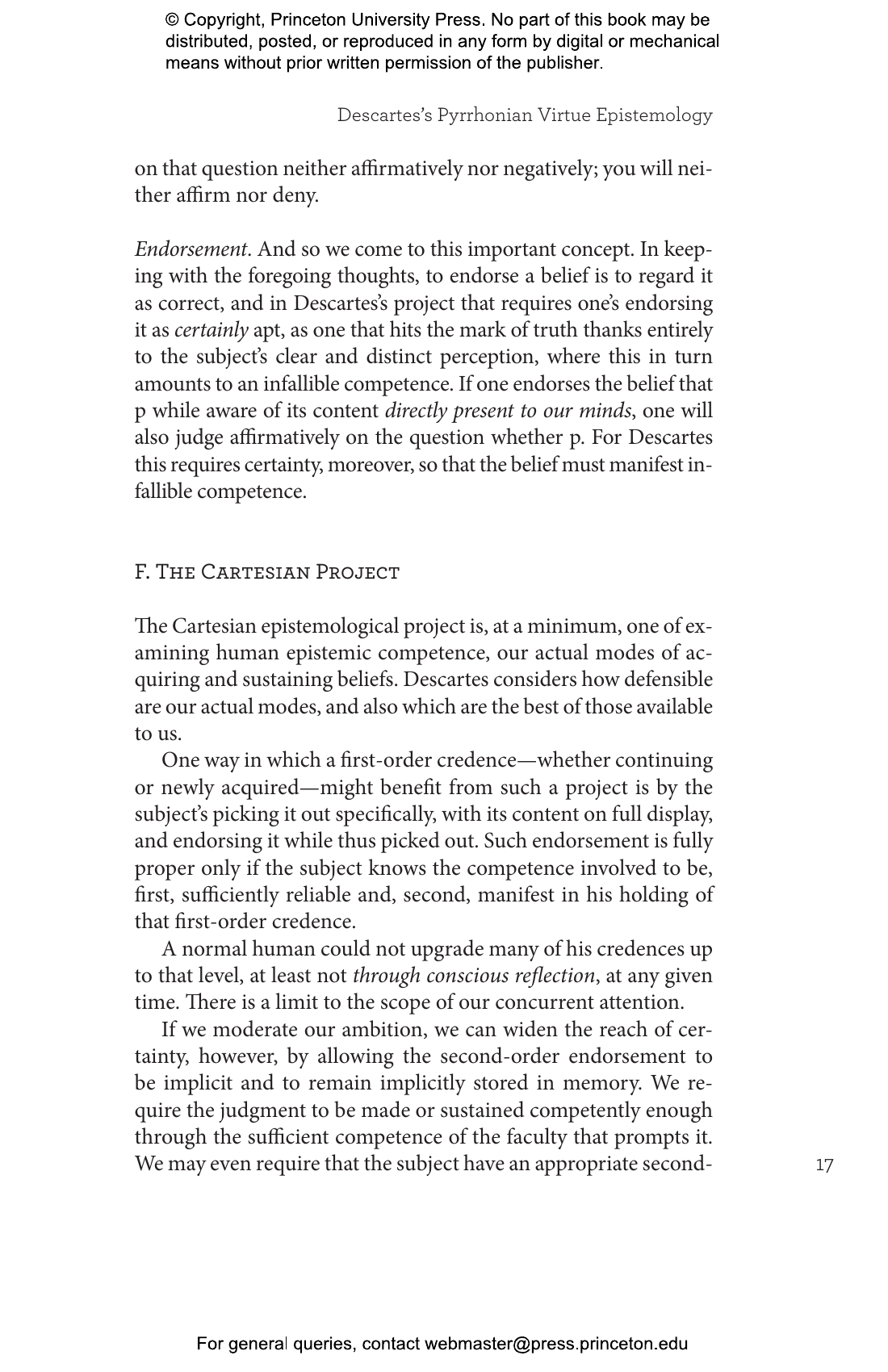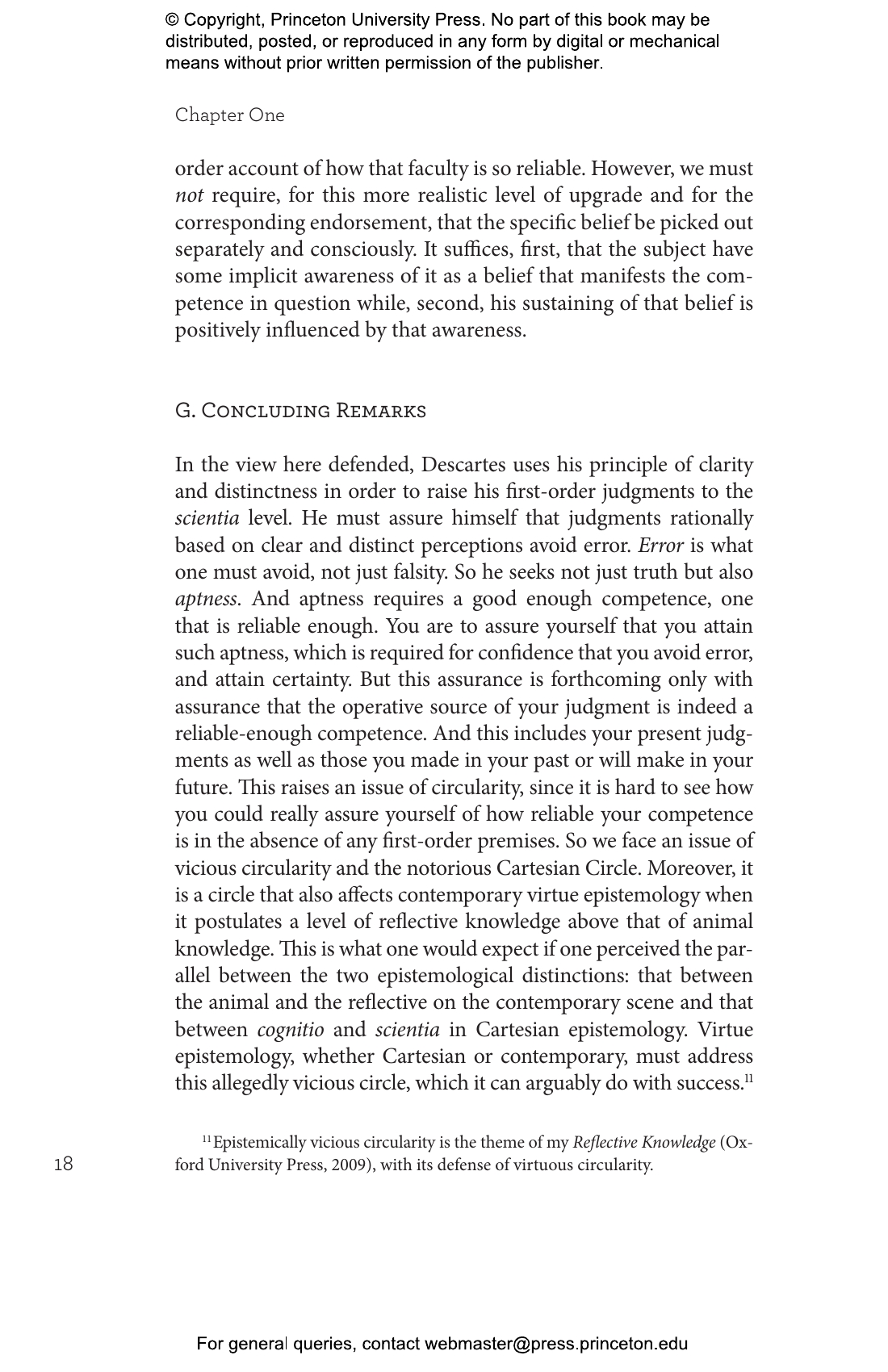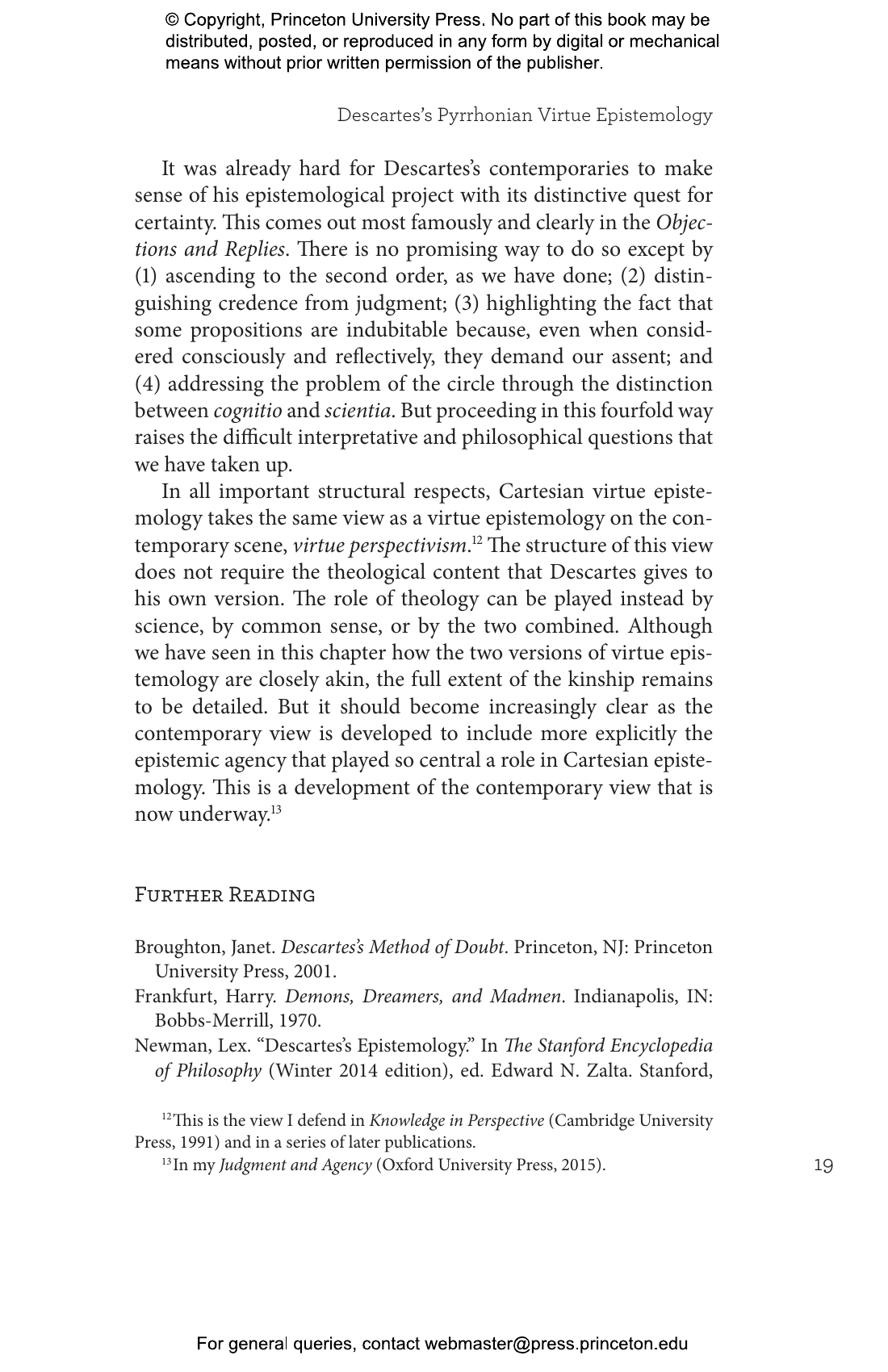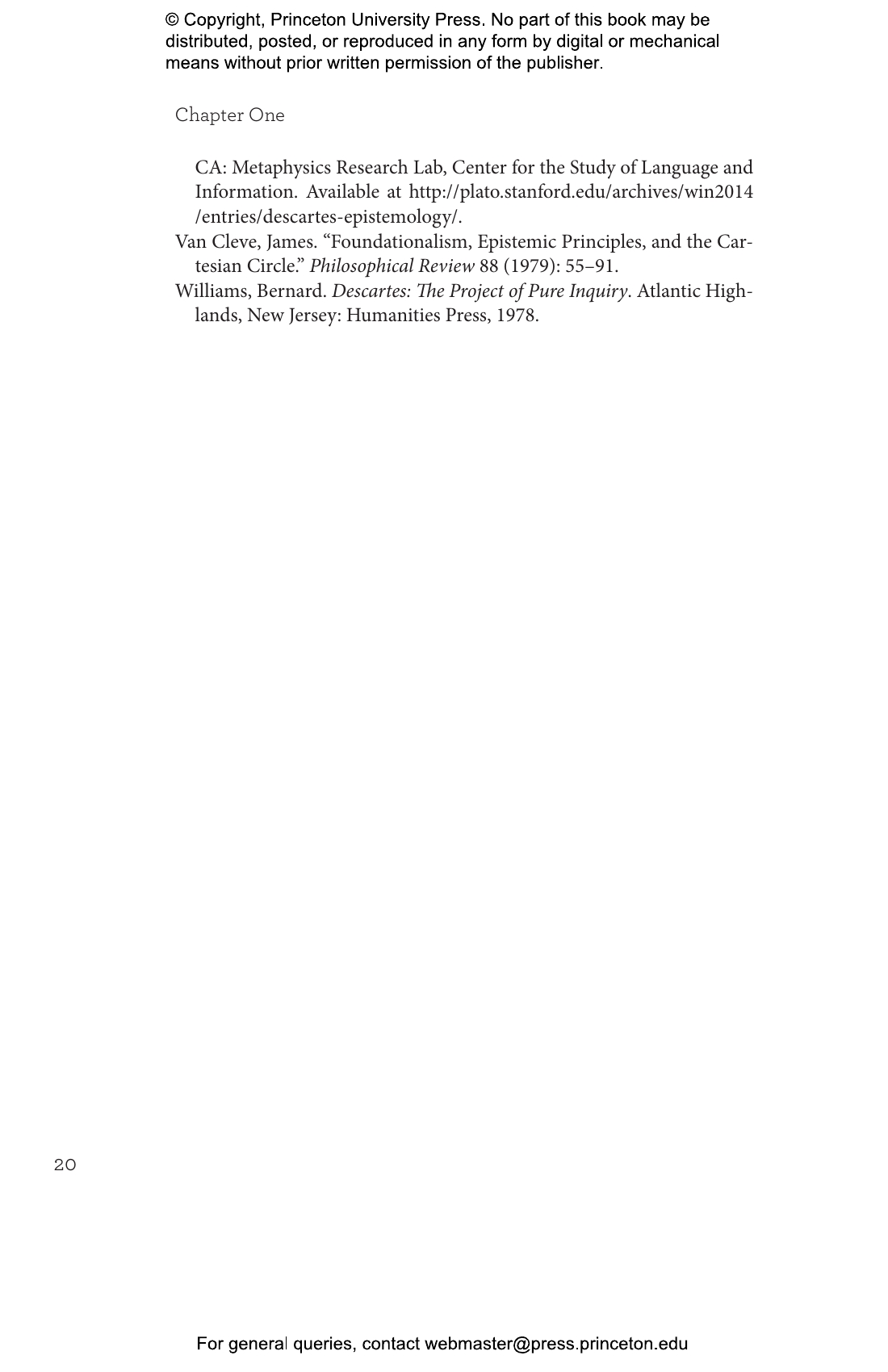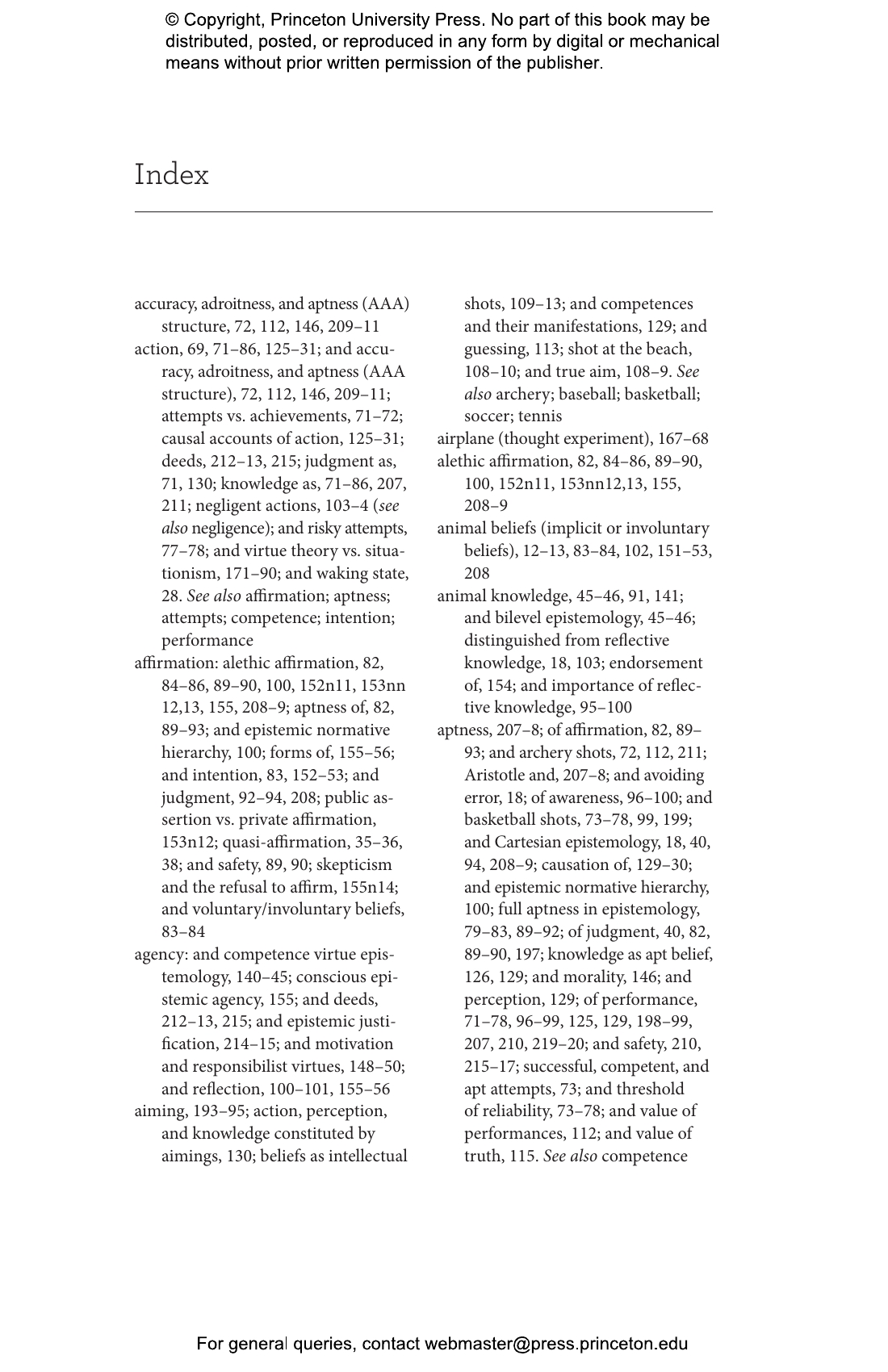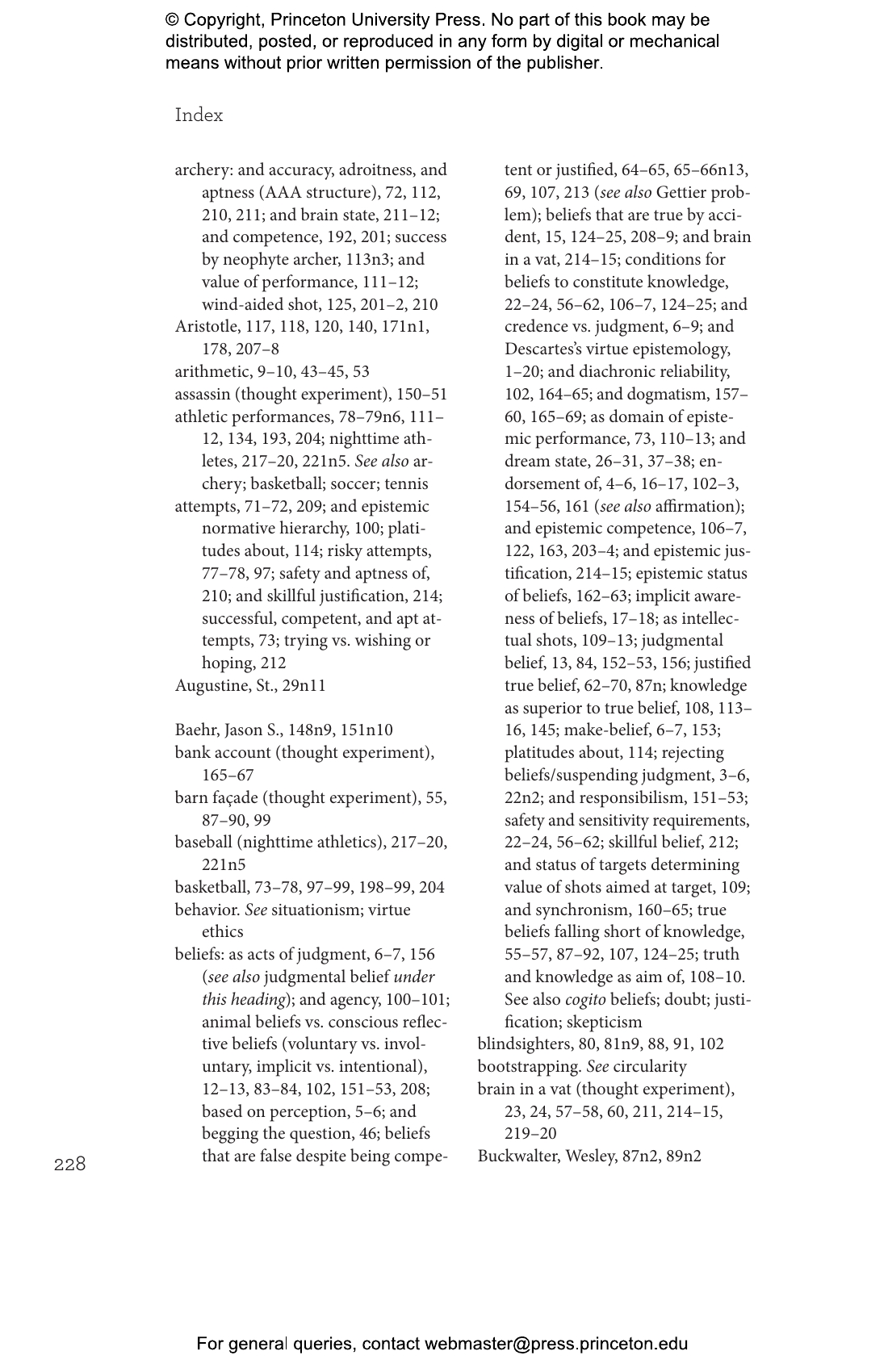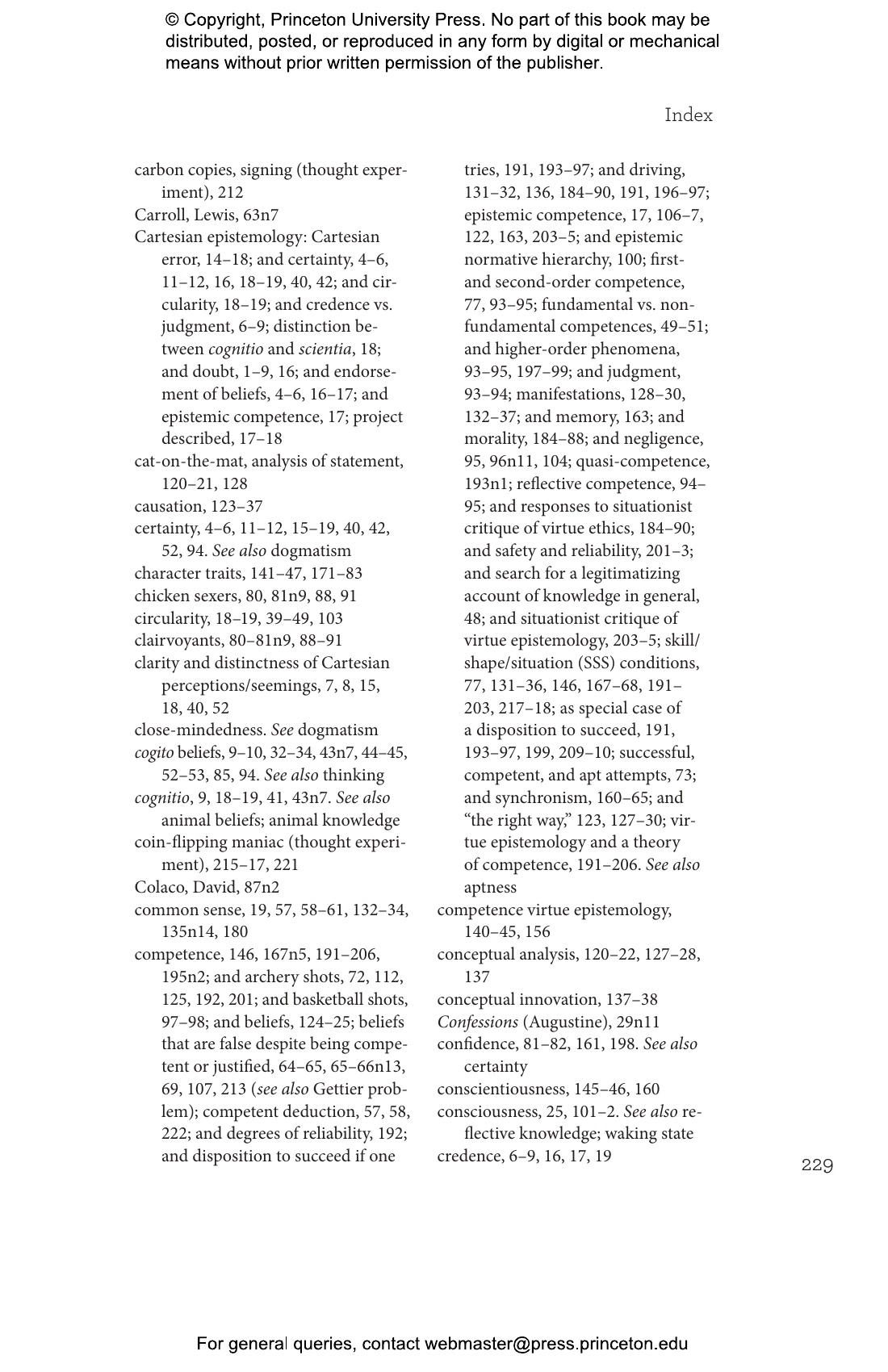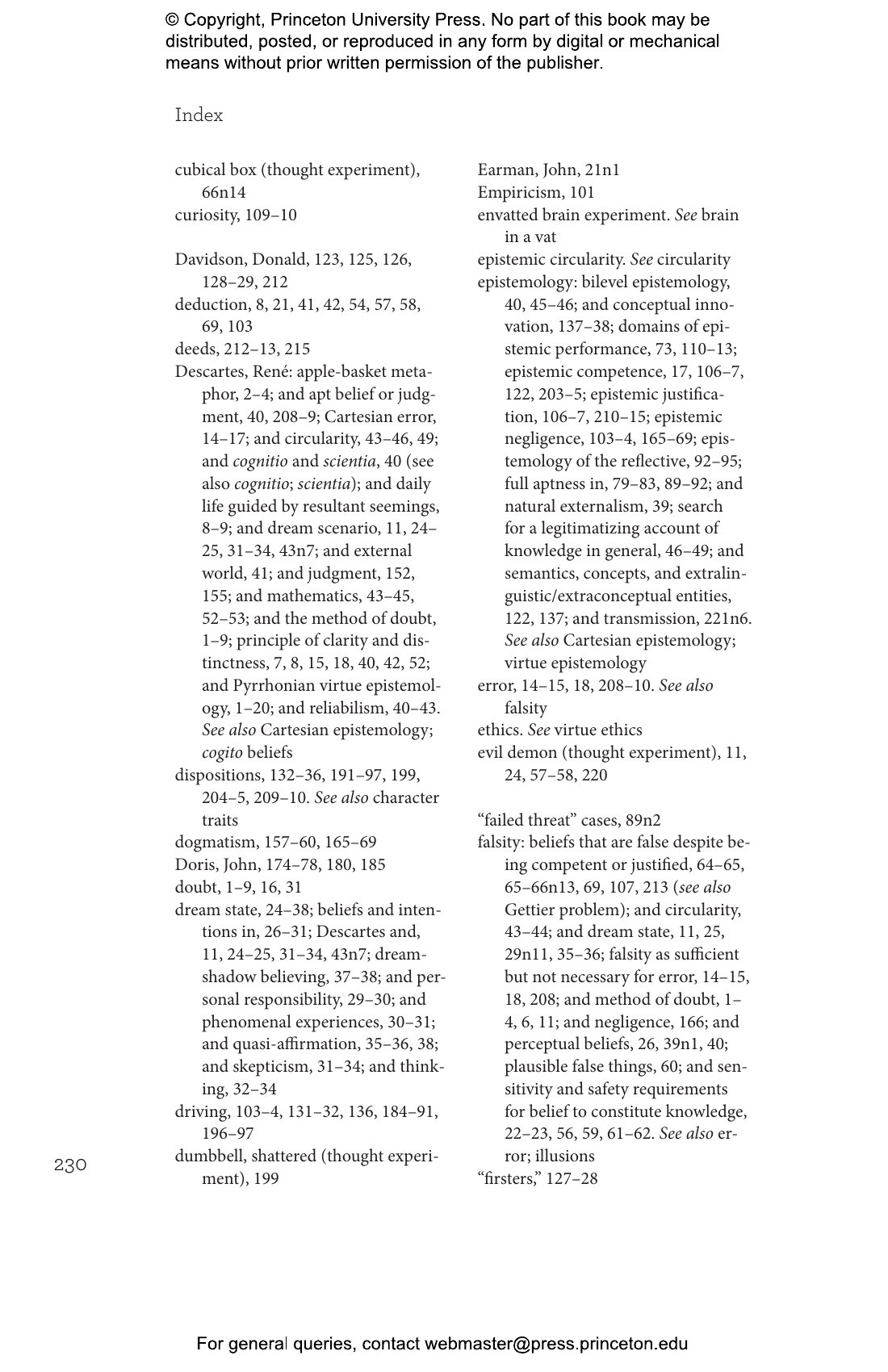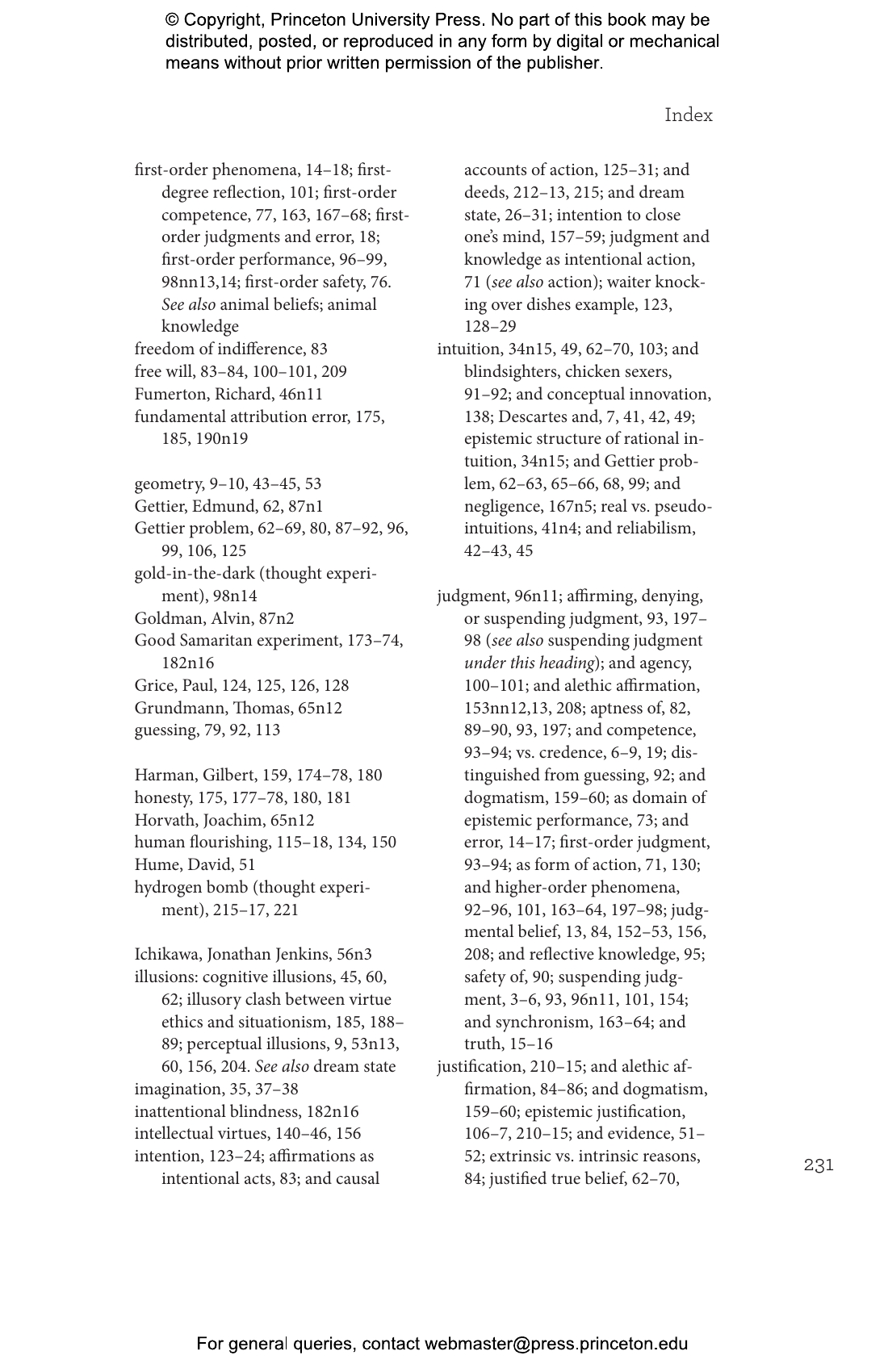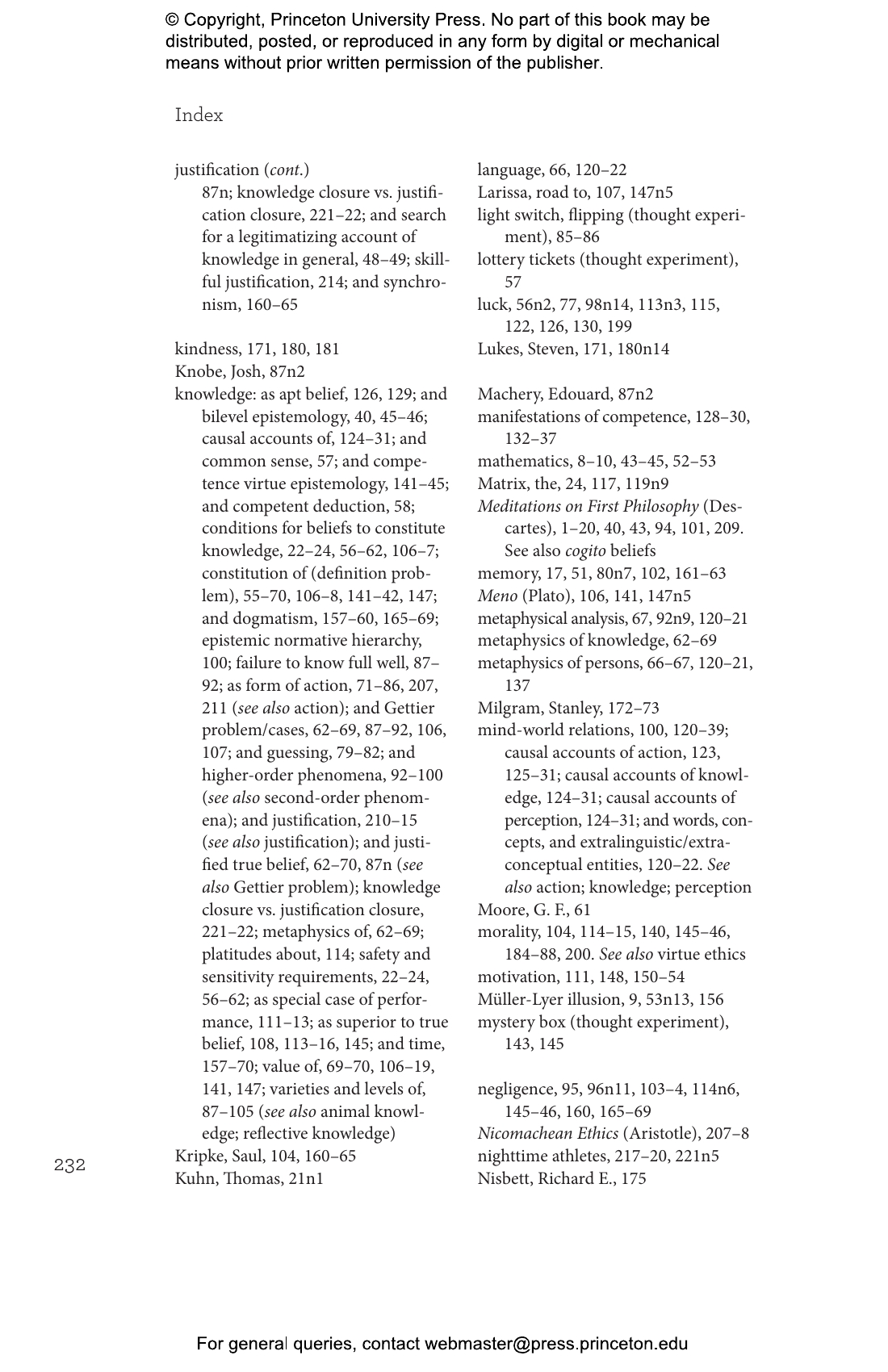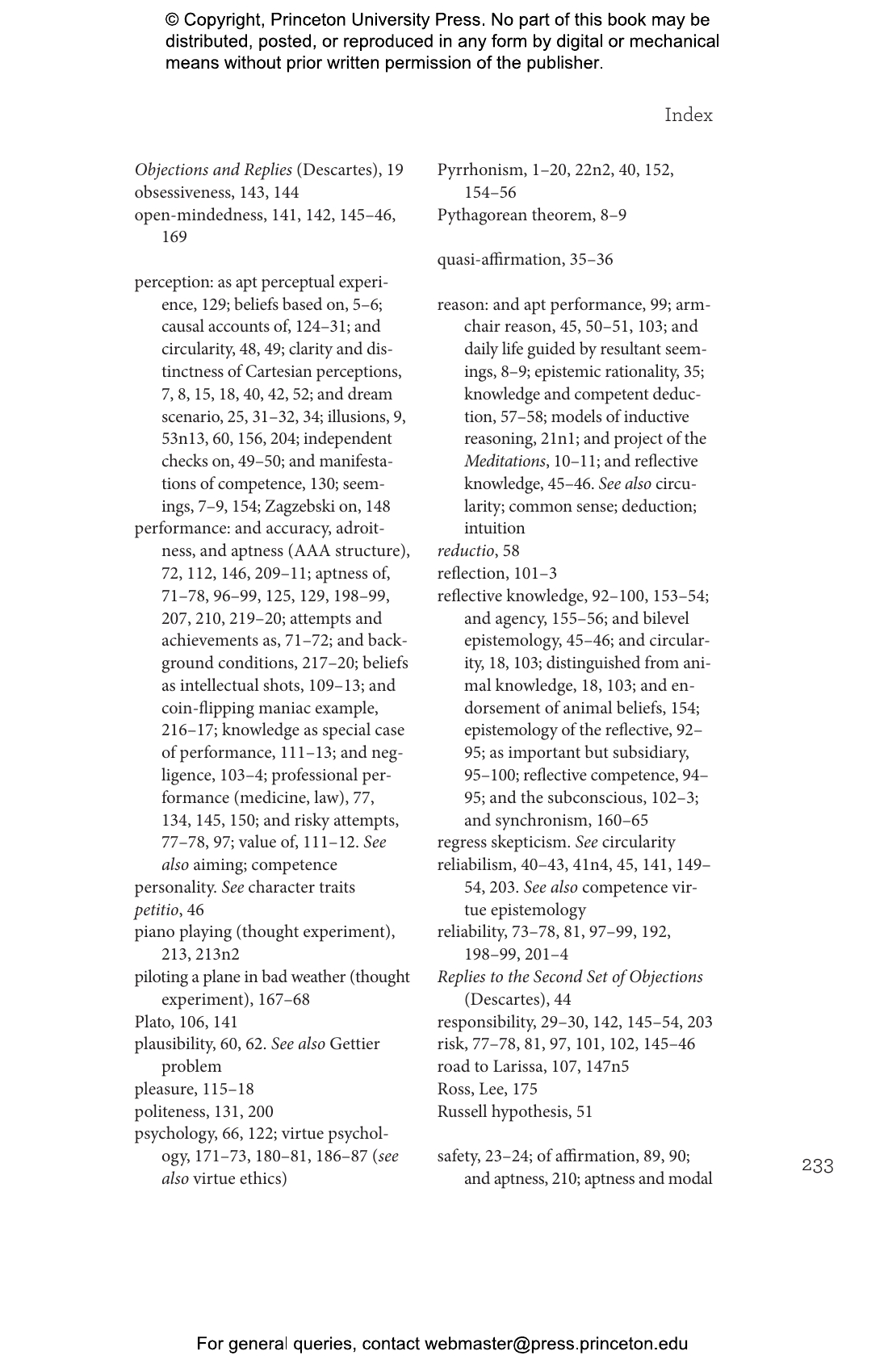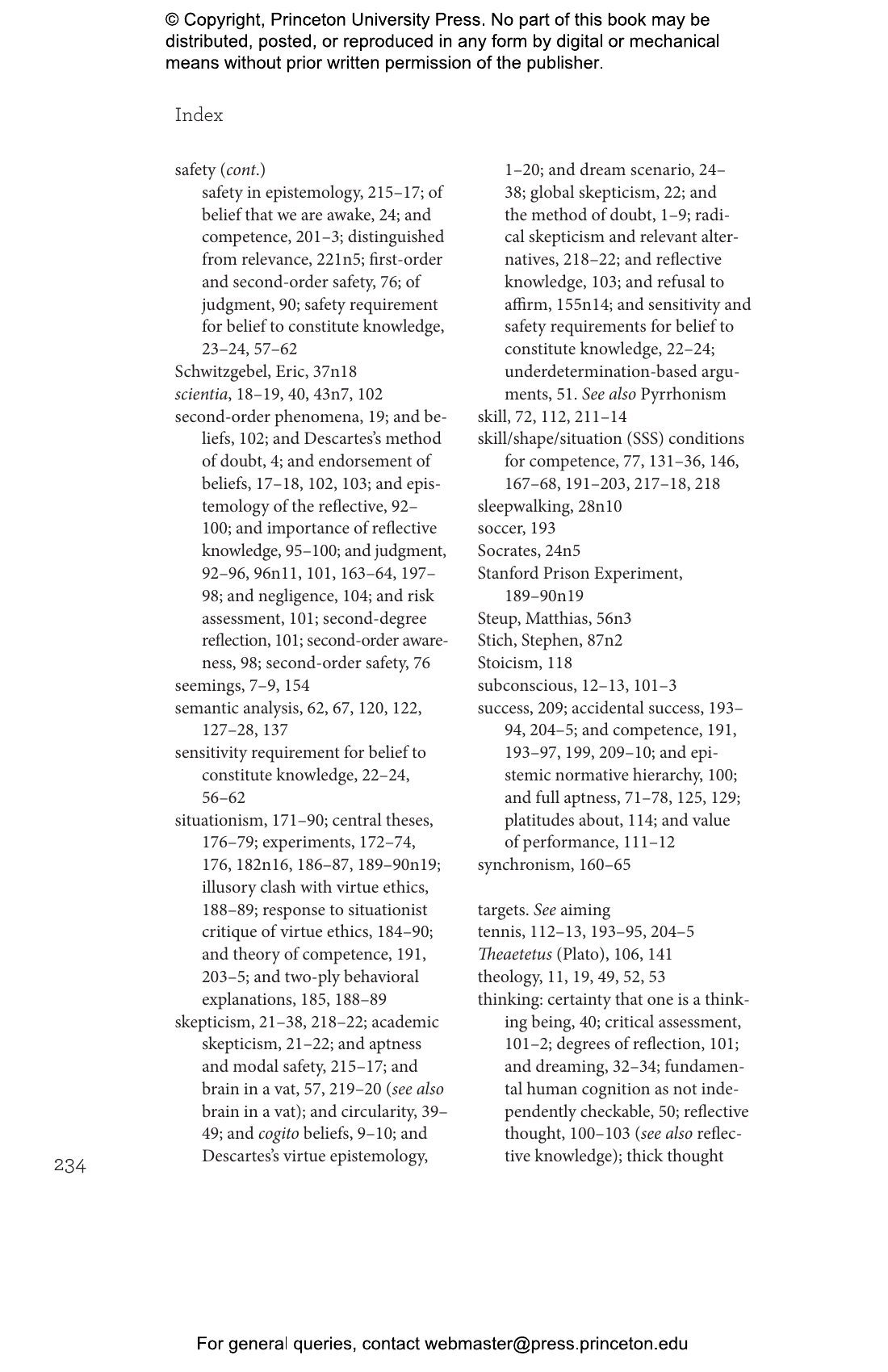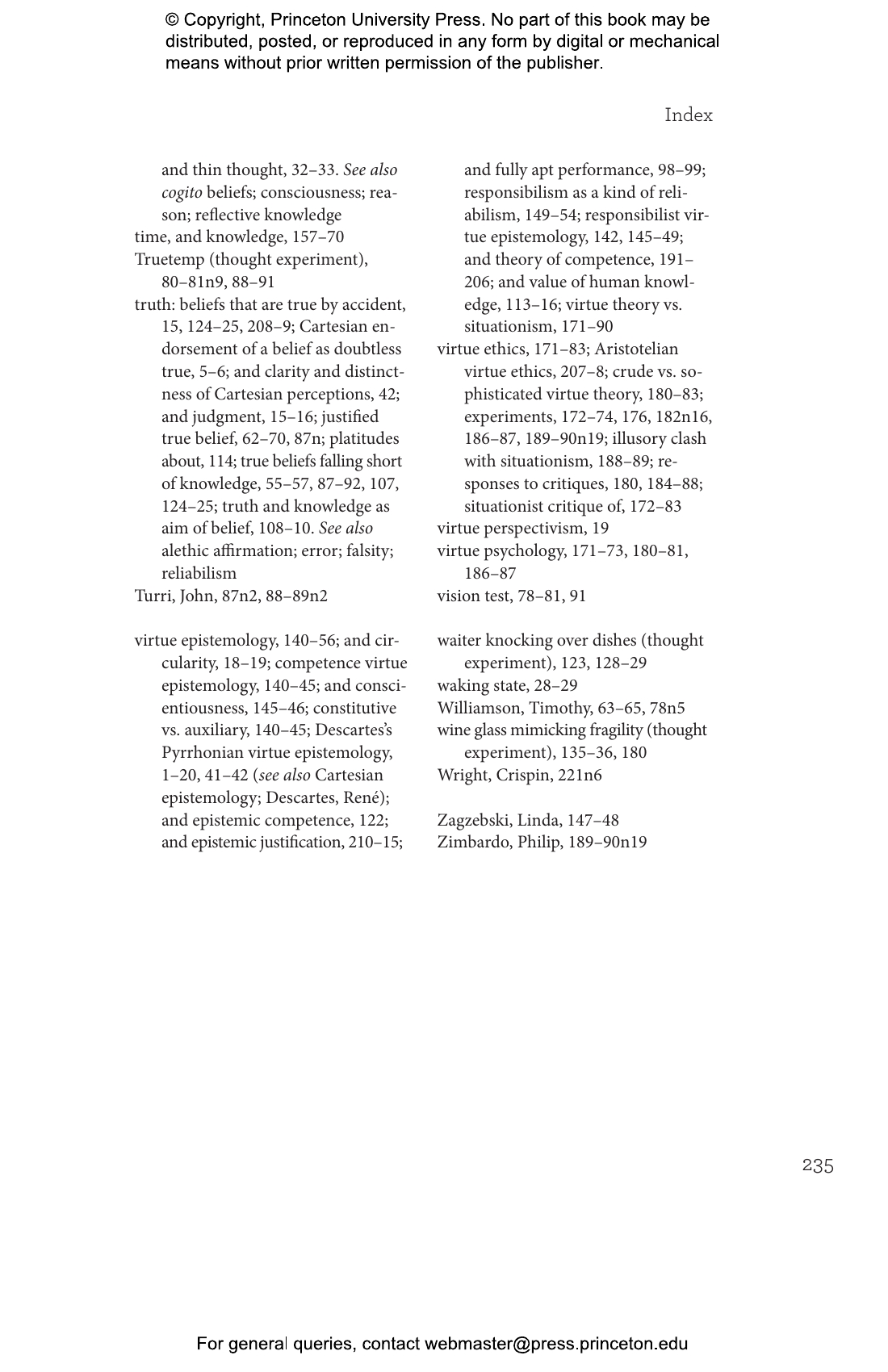In this concise book, one of the world’s leading epistemologists provides a sophisticated, revisionist introduction to the problem of knowledge in Western philosophy. Modern and contemporary accounts of epistemology tend to focus on limited questions of knowledge and skepticism, such as how we can know the external world, other minds, the past through memory, the future through induction, or the world’s depth and structure through inference. This book steps back for a better view of the more general issues posed by the ancient Greek Pyrrhonists. Returning to and illuminating this older, broader epistemological tradition, Ernest Sosa develops an original account of the subject, giving it substance not with Cartesian theology but with science and common sense.
Descartes is a part of this ancient tradition, but he goes beyond it by considering not just whether knowledge is possible at all but also how we can properly attain it. In Cartesian epistemology, Sosa finds a virtue-theoretic account, one that he extends beyond the Cartesian context. Once epistemology is viewed in this light, many of its problems can be solved or fall away.
The result is an important reevaluation of epistemology that will be essential reading for students and teachers.
Ernest Sosa is Board of Governors Professor of Philosophy at Rutgers University and the author of many books, including Judgment and Agency, Knowing Full Well (Princeton), Reflective Knowledge, A Virtue Epistemology, and Knowledge in Perspective. He is a member of the American Academy of Arts and Sciences.
- Preface for Readers and Instructors
- Acknowledgments
- CHAPTER ONE
- Descartes’s Pyrrhonian Virtue Epistemology
- CHAPTER TWO
- Dream Skepticism
- CHAPTER THREE
- Regress Skepticism
- CHAPTER FOUR
- Knowledge: What It Is and How We Might Have It
- CHAPTER FIVE
- Knowledge as Action
- CHAPTER SIX
- Varieties and Levels of Knowledge
- CHAPTER SEVEN
- The Value of Human Knowledge
- CHAPTER EIGHT
- Mind–World Relations: Action, Perception, Knowledge
- CHAPTER NINE
- Two Forms of Virtue Epistemology
- CHAPTER TEN
- Knowledge, Time, and Negligence
- CHAPTER ELEVEN
- Virtue Theory against Situationism
- CHAPTER TWELVE
- Virtue Epistemology and a Theory of Competence
- CHAPTER THIRTEEN
- Knowledge and Justification
- Further Reading
- Index
"Ambitious."—Choice
"This is, among other merits, the best epistemology textbook for advanced undergrads of which I'm aware. . . . A fantastic book. . . . The book should be of great value to advanced undergraduate and postgraduate students, and it should be mandatory reading for professional epistemologists as well."—Adam Carter, Notre Dame Philosophical Reviews
"This is, among other merits, the best epistemology textbook for advanced undergrads of which I'm aware. . . . Overall a rich and explanatorily powerful view that hangs together remarkably tightly. . . . A fantastic book. It is a great model of careful and deep epistemology, and it synthesizes a comprehensive and sophisticated framework developed by someone who is arguably the world's foremost epistemologist. The book should be of great value to advanced undergraduate and postgraduate students, and it should be mandatory reading for professional epistemologists as well."—Adam Carter, Notre Dame Philosophical Reviews
"This is without doubt the best advanced epistemology textbook currently available, which is hardly surprising given that it is written by the world's foremost epistemologist. Essential reading for students and scholars alike."—Duncan Pritchard, University of Edinburgh
"This is a wonderful piece of work. Ernest Sosa is one of today's most distinguished epistemologists and his system is unrivaled in detail and nuance. Here he lays it out and defends it, explains how it does justice to the insights of Pyrrho and Descartes while avoiding well-known problems, and argues for the superiority of his approach over other contemporary accounts. The detailed and patient system building, the complete mastery of the literature, and the distinctiveness of Sosa's views make this book unique."—Richard Foley, New York University
"There is no philosopher alive today whose understanding of epistemology is as detailed, comprehensive, or clear as Ernest Sosa's. This is a most illuminating and instructive book."—Ram Neta, University of North Carolina, Chapel Hill
